

COURSE GUIDE
25/26

HEADTEACHER’S WELCOME
I am delighted to present to you the Sixth Form Course Guide which will give you an insight into the wide variety of courses and exciting enrichment opportunities available to students at Weatherhead Sixth Form.
Weatherhead Sixth Form has an excellent track record of academic success and our students secure places at top universities and on higher and degree level apprenticeship programmes.
High quality teaching and learning, along with excellent support and guidance, ensure all students succeed and meet their aspirations. Every student is well known to their teachers and the Sixth Form team as an individual, and we are proud of the care and nurturing they receive.
The Sixth Form is a very happy and vibrant place where students enjoy working hard and getting involved in a wide range of leadership, enrichment and community activities which challenge and develop them as young adults and prepare them for the future.
I am very proud of our Sixth Form students and I really do believe the teaching, wider opportunities and pastoral care they receive gives them something very special.
Enjoy reading this course guide and please feel free to visit us to witness first hand what we offer.
Mr D A Mackenzie

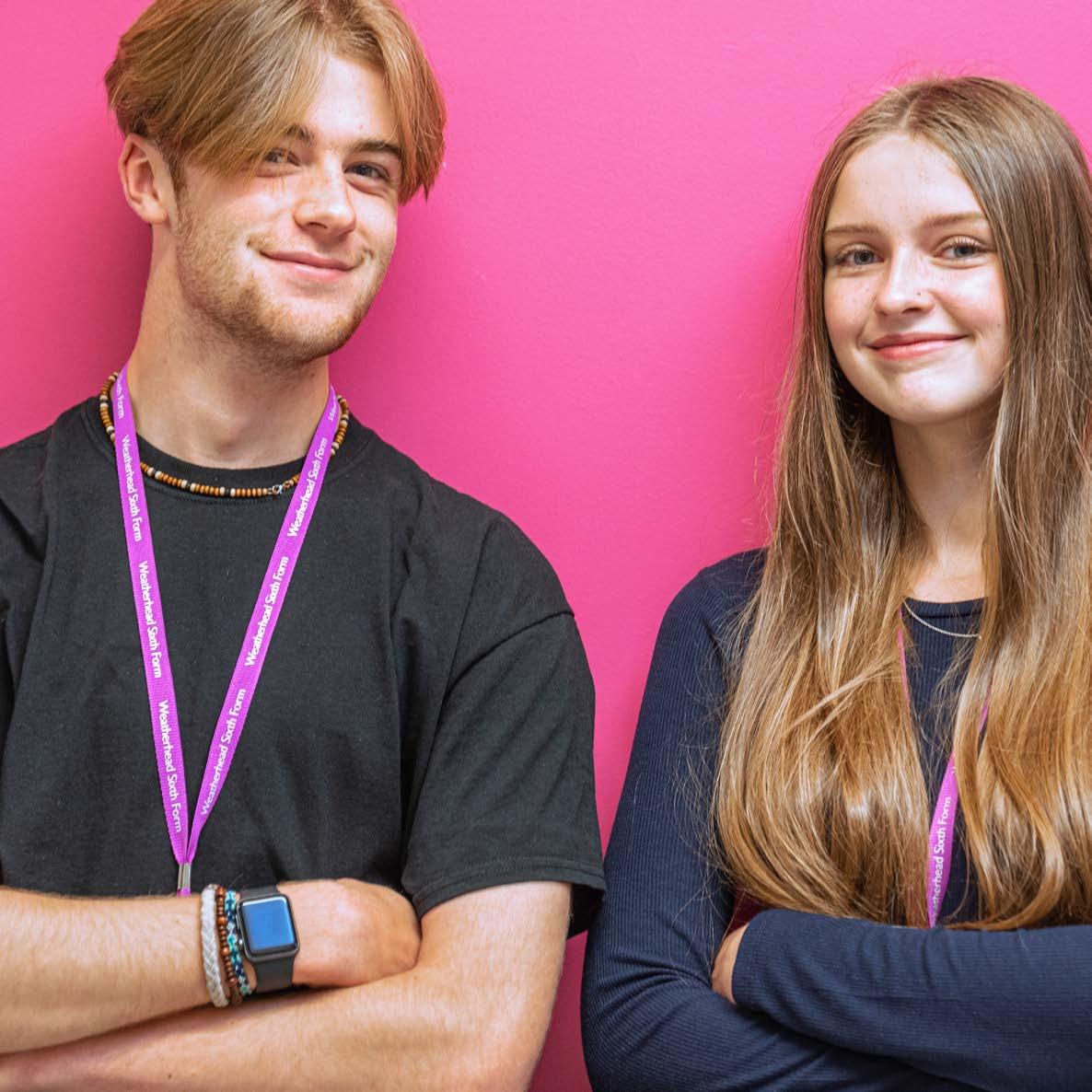

WHY CHOOSE WEATHERHEAD 6TH FORM?
100% pass rate on all vocational courses
96% pass rate across all level 3 courses
Over 92% of positive destinations
High quality teaching provided by expert Key Stage 5 teachers who are committed to your success
A curriculum created around your option choices
Outstanding academic and pastoral support – our team of dedicated form tutors and specialist Sixth Form staff ensure that every student has the opportunity to achieve their full potential
Exceptional Personal and Professional Development
opportunities
University standard study hubs
A Scholars’ Programme to prepare our most able students for the top universities
Worldwide trips
Student Leadership opportunities
Specialist advice on further education, higher education, apprenticeships and employment
WHY IS SIXTH FORM DIFFERENT TO SCHOOL?
1
3
2
Dedicated Study hubs
All Sixth Form students have access to our new university standard study hubs.
Sixth Form Common Rooms
Only students from year 12 and 13 are allowed to use this space.
Role Models
Sixth Form students are provided with a range of opportunities to student leadership and will influence younger students to follow their example.
5
4
7
6
Course Options
There are over 28 different A Levels, BTECs and T Levels to choose from.
Independent Study and Free Periods
All students have free time for independent study, but they can also leave in their free periods.
Wear Your Own Clothes
Uniform or business dress is not a requirement. Our dress code is smart casual, meaning that students can choose what they wear.
Personal and Professional Development (PPD)
We pride ourselves in the variety of opportunities that are made available to our students.
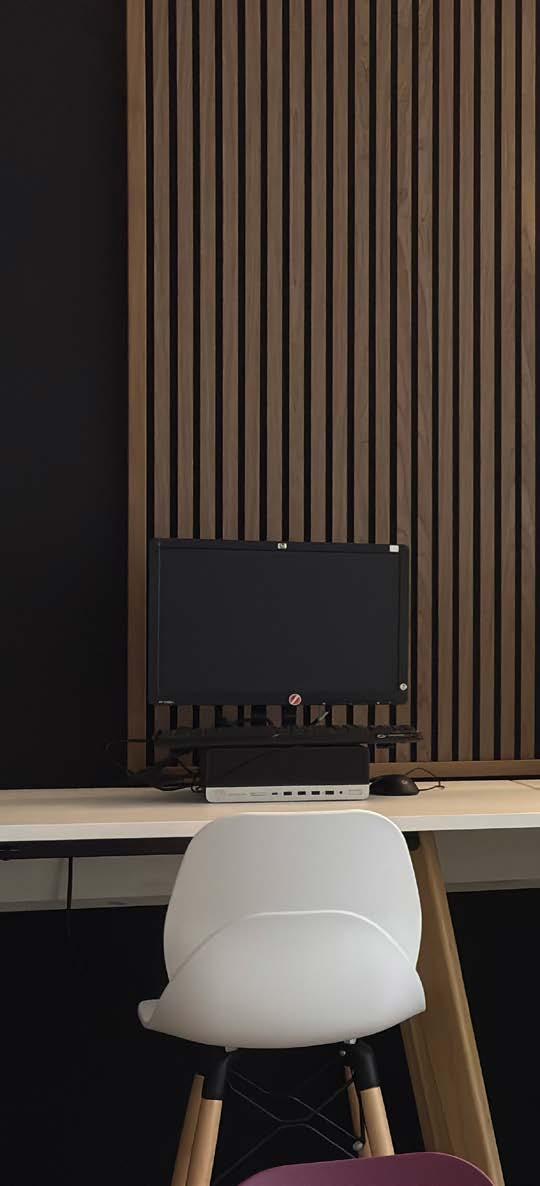

MEET OUR CLASS OF 2025
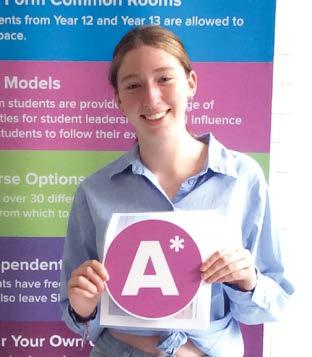
CHLOE
T Level technical qualification in Education and Early Years A* A* A*
Destination:
Primary Education with QTS at Manchester
Metropolitan University
“ “
Childcare is a fantastic course and the support I received helped me achieve my outstanding grades
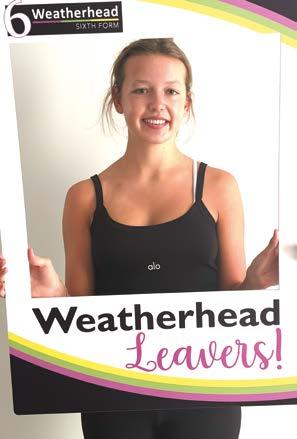
A Level Biology A
A Level Chemistry B
A Level Mathematics B
Destination:
Medicine at University of Nottingham
Without the support from the Sixth Form Team, I wouldn’t be where I am now
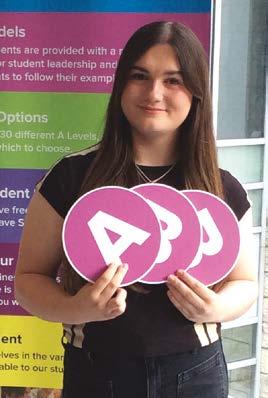
KITTY
A Level English Literature A*
A Level Film Studies B
BTEC Business Studies Distinction
Destination:
English at University of York
I’m so glad that I made the decision to move to Weatherhead Sixth Form. My time here taught me that with the right support and the right mindset, that anything is possible
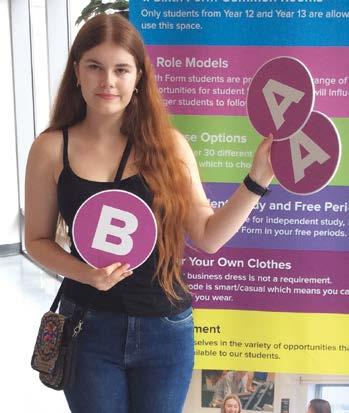
ELIZABETH
A Level English Literature A
A Level History A
A Level Mathematics B
Destination:
History at Liverpool John Moores University
I really enjoyed my time in Weatherhead Sixth Form, the staff are amazing

KAY
A Level French A*
A Level Sociology A
A Level History B
Destination:
Human, Social and Political Sciences at Cambridge
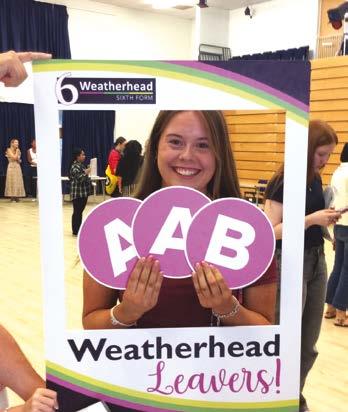
GRACIE
A Level English Literature A
A Level Sociology A
A Level History B
Destination: Sociology with Criminology at University of Liverpool
The staff at Weatherhead were amazing in helping me achieve my grades and getting in to uni. They were proactive in challenging me with my work and provided me with support when I needed it
I am really grateful for all of my teachers’ encouragement and support, without them, I don’t think I could have gained my place at Cambridge
TRIPS & VISITS @WEATHERHEAD
At Weatherhead, we are known for providing incredible opportunities to our students. This year, our students have had the chance to visit Washington, New York, Venice, Berlin, Costa Brava, Malaga, Camprodon to name a few. We know how important it is to give you the opportunity to experience the world beyond the classroom. That’s why our educational trips and visits have been put together to bring learning to life, all whilst further developing your passion for your chosen subjects.


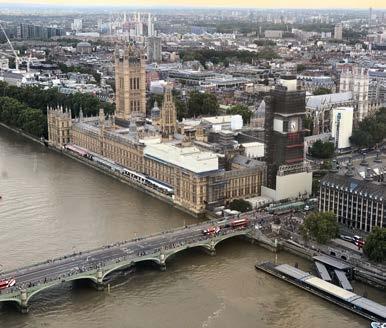

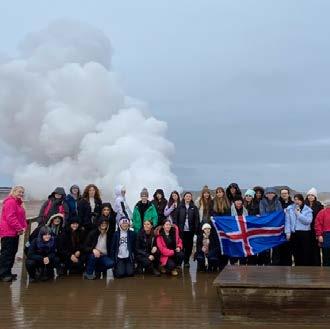

LONDON
Camprodon
Washington
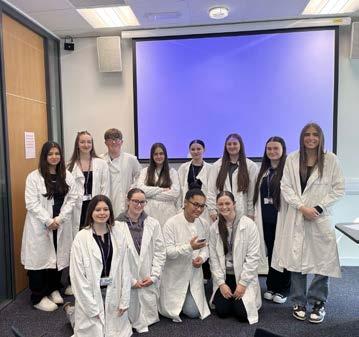


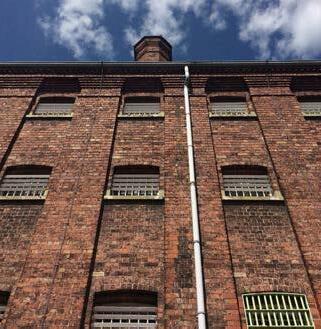
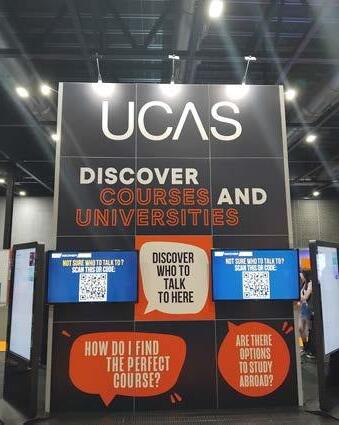
UCAS Conventions
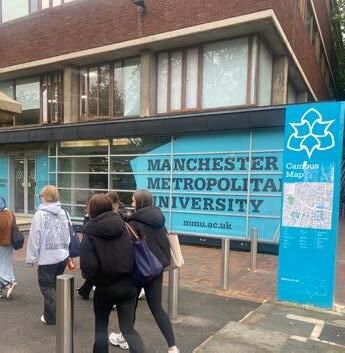
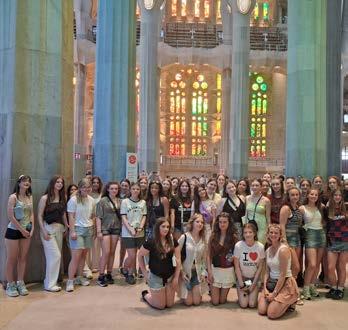
COSTA BRAVA
UNIVERSITY TRIPS
Unistem
NEW YORK
Shrewsbury Prison
VENICE
THE BEST FACILITIES @WEATHERHEAD

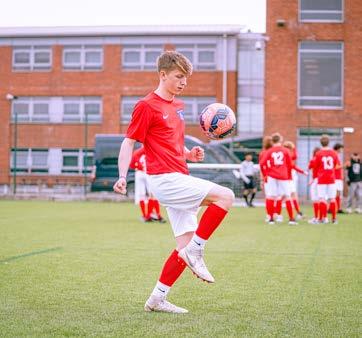
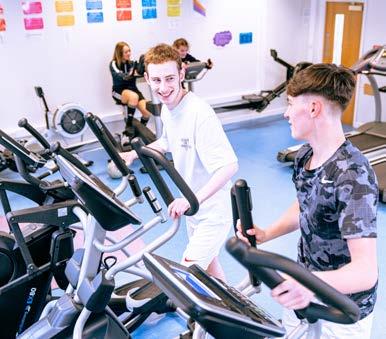

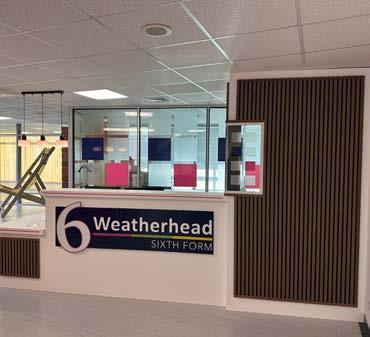
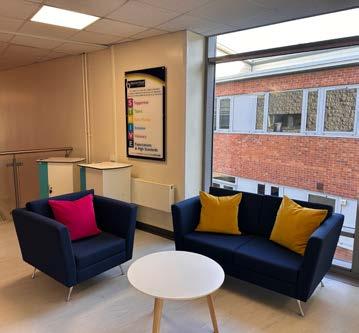

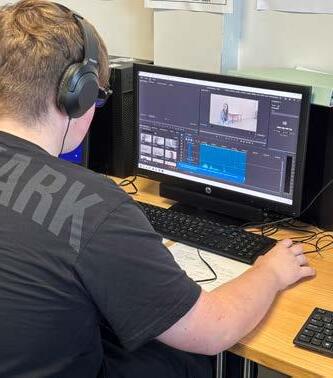
Media recording studio
Spacious Common Room newly refurbished... ...area ...sixth form...

PERSONAL & PROFESSIONAL DEVELOPMENT @WEATHERHEAD
Studies show that students who take part in Personal and Professional Development activities are statistically more likely to obtain a bachelor’s degree, show advance academic performance, exhibit improved leadership and time management skills, as well as develop confidence.
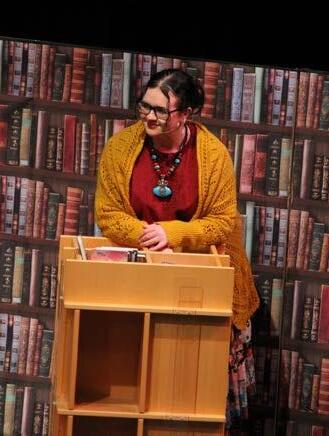
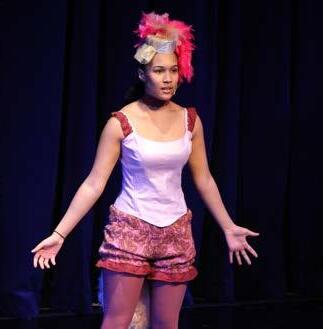
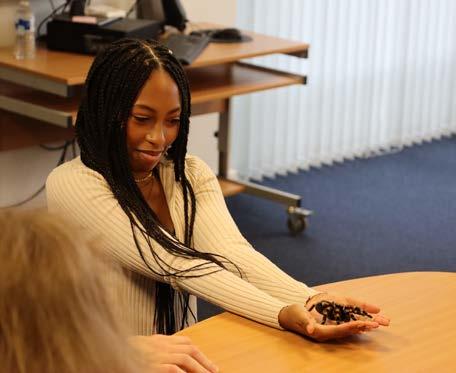
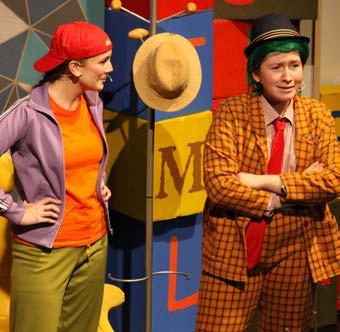
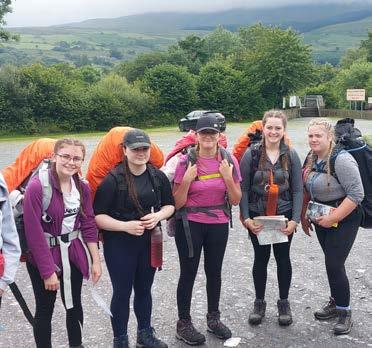
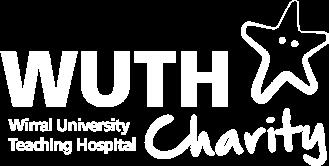
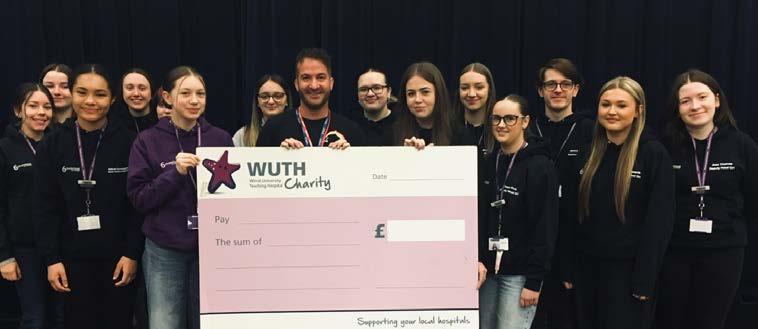
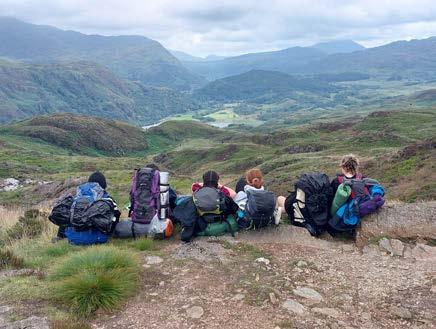
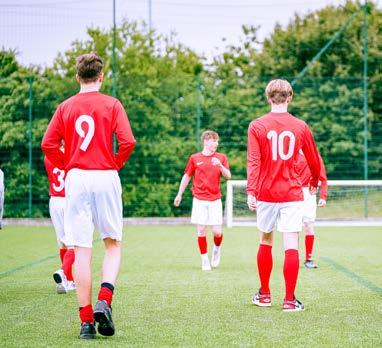

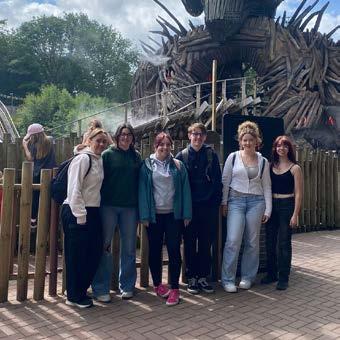

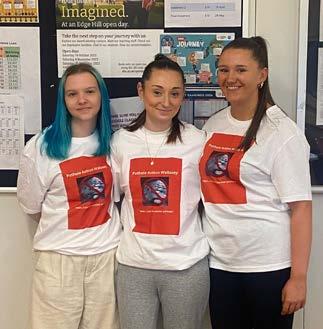
PERSONAL & PROFESSIONAL DEVELOPMENT @WEATHERHEAD
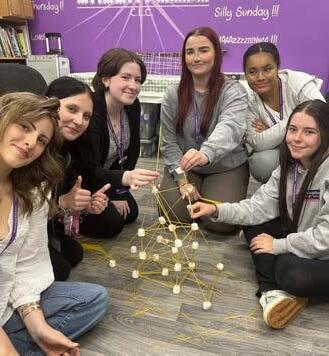
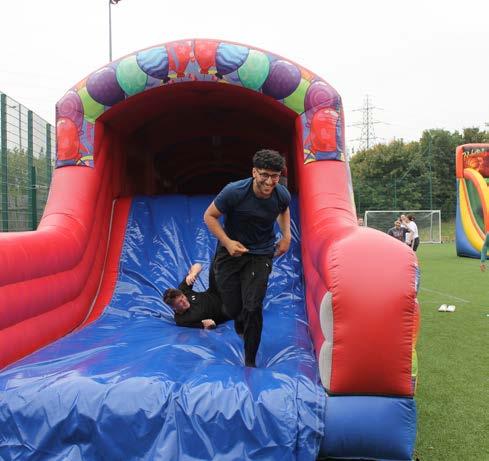

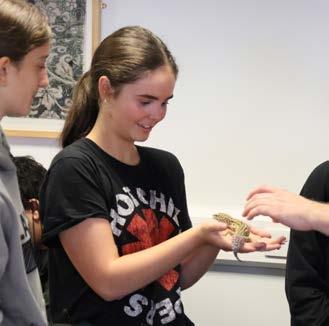
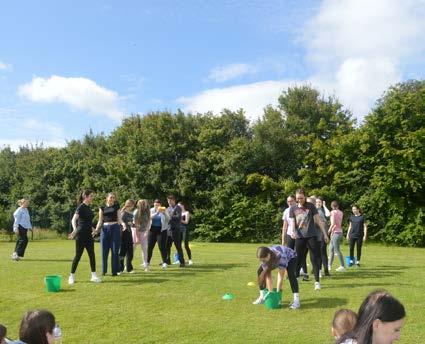
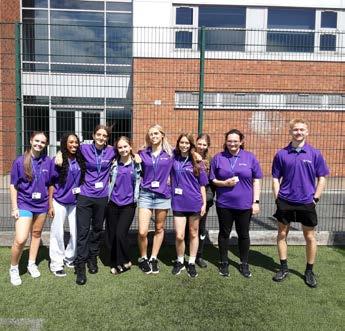
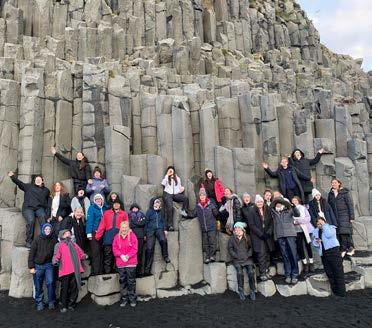
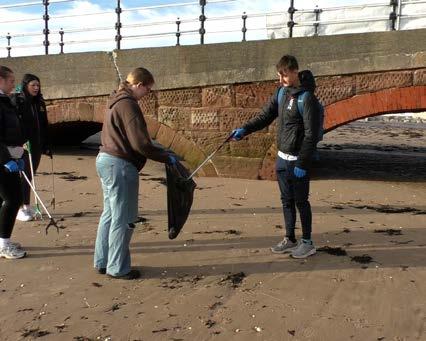
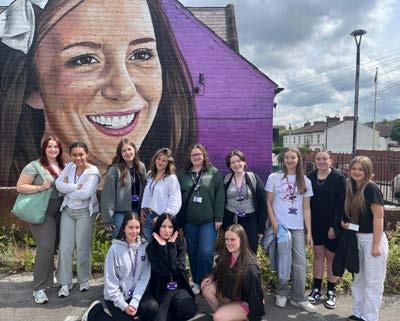
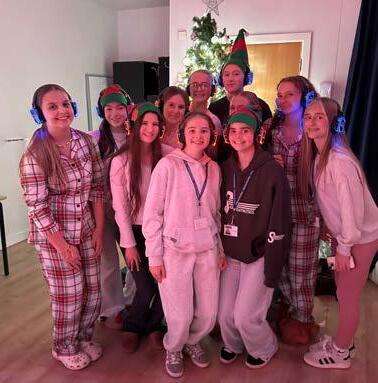
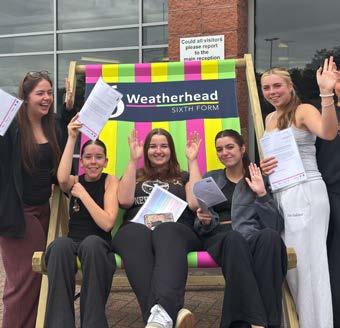
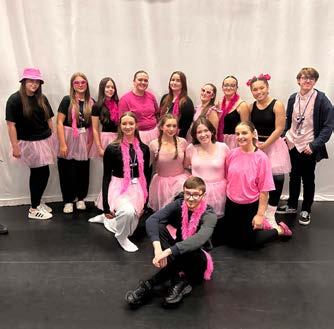
EVENTS & socialising @WEATHERHEAD
A happy and confident student will achieve and become a successful individual. Alongside academic or vocational study, socialising and new friendships are a key part of Sixth Form life. Students who join us at Sixth Form all comment on the warm welcome and the ease in which they transition in to Year 12.
Before starting Sixth Form in 2026 you will have the opportunity to participate in taster, orientation and team building days. As a Weatherhead student, you will have the opportunity to ‘sign up’ to a form group and if you are new to Weatherhead, you will join a form with one of your friends.
At the end of your two years at Weatherhead, the highlight of the social calendar is the Sixth Form Prom, the Year 13 Prom Committee plans this with our Learning Support and PPD Coordinator. Recent successful proms have been held at the Liverpool Hilton Hotel, 30 James street, The Liverpool Liver Building and The Bentley Hotel.
Wellbeing and Socialising activities include:
Orientation Day in the summer term
Welcome breakfast ice breaker (for newcomers to Weatherhead)
Team building activities
Pink Day charity fundraising
Activity week
Sixth Form Prom
Termly social events
Football
Netball
Yoga
Interform activities
Fancy dress

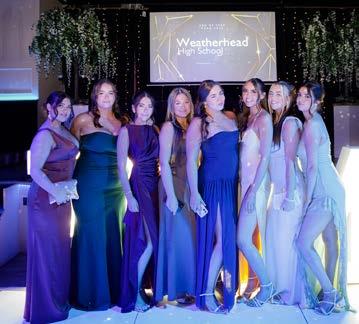

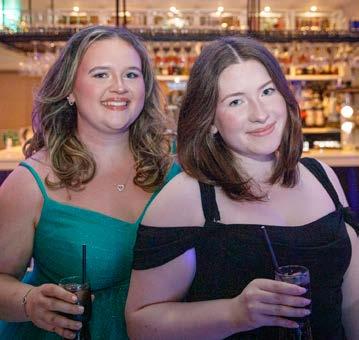

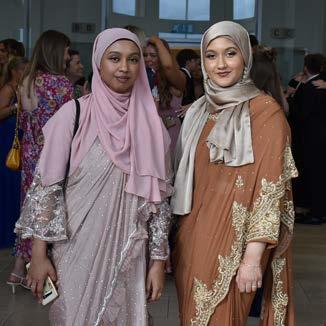


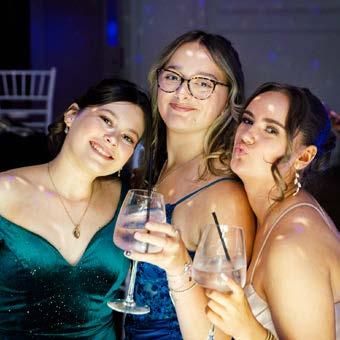


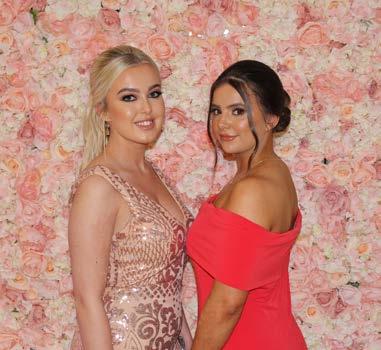
SUPPORT @ WEATHERHEAD
The Scholars’ Programme
Four A Level Pathway
Option to take an additional A Level.
Extended Project Qualification (EPQ)
A largely self-directed project dedicated to a topic of interest. EPQs are highly regarded by universities.
Scholars’ Bursary
Access to a unique funding initiative to enable students to purchase resources and materials to enhance their study
University Visits
Weatherhead has close links with Oxbridge Colleges and Russell Group Universities.
IntroMed Week
A dynamic and immersive experience, offering students hands-on exposure to a range of healthcare professions.
HE+ Programme
Allows students to explore the subject they wish to study at university, including a group research project led by Cambridge University.
University of Liverpool Scholar’s Programme
Designed for Year 12 students to support their entry into higher education by providing academic skills workshops, application guidance, university lectures, and academic assignments.
Oxbridge Residentials
Students have the opportunity to develop their subject understanding and study skills whilst staying in college and meeting Oxford/Cambridge students and academics
Social Mobility Foundation Scheme
Weatherhead has close links with this charity that supports talented young students to access opportunities in professional life
Oxbridge Mock Interviews
Our dedicated Scholar’s Coordinator works closely with our students who are applying to Oxbridge Universities.
Bespoke Support
Our students are supported with admissions tests, interview preparation and funding subscriptions to platforms such as ‘Medify’ for those students interested in medicine.
Eligibility
Top 10% students achieving 6 grade 7s or higher including English and Mathematics at GCSE.
Have a good strong record of performance and effort. Show the potential to a achieve a minimum of A*AA.
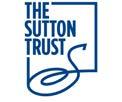
Learning support Careers Programme
Year 12 Work Experience
All Year 12 students are provided with the opportunity to gain a first-hand insight in to the world of work through the completion of a week of work experience.
Year 13 Mock Interview Day
All Year 13 students are provided with an invaluable experience to prepare for university and working life as a team of professionals conduct mock interviews and provide constructive feedback on their performance.
Future Pathways Week
Through a dedicated week of events, the ‘Future Pathways Week’ provides our students with the opportunity to take part in personal statement workshops, career taster sessions and question and answer sessions with Weatherhead Alumni students and is the perfect way to explore all their future options.
UCAS Convention and University Visits
The UCAS discovery event is a chance for students to meet with universities, colleges, apprenticeship providers and employees, and ask them questions to help them discover their future. Students also visit a variety of different universities across the country to focus their attention on the UCAS process and discover what life at university is like.
Wellbeing
Our Year 13 students benefit from dedicated Pathways Mentors who provide weekly oneto-one support with university applications, apprenticeships, and career planning. With subject-specialist tutors holding degrees in their fields, every student is expertly matched with a mentor who understands and supports their individual ambitions and career aspirations.
Weatherhead also enjoys excellent links with universities, professional bodies and industry.
We have a specialist team offering career advice; students are advised on the best routes into higher education and careers, alongside opportunities that will benefit their chosen subjects and university applications.
The Wellbeing of our students is a priority at Weatherhead Sixth Form.
Our dedicated team uses the STRIVE approach, working with students to build emotional resilience and develop their self-care. We provide internal pastoral support as well as referring to a range of specialist external agencies and organisations. There is a wide range of Personal and Professional Development opportunities to get involved in to build friendships and de-stress.
YOUR STUDY PROGRAMME
CLASSES & INDEPENDENT
STUDY
• COURSES
• REGISTERED INDEPENDENT STUDY
DEVELOPING & UPSKILLING YOU
• PERSONAL AND PROFESSIONAL DEVELOPMENT
• STRIVE AND WIDER EXPERIENCES WEEKLY SCHEDULE @ WEATHERHEAD
OUR curriculum
29 different Level 3 Courses to choose from
Level 2 & GCSE
A Levels, BTECS & T Levels
CHOOSING YOUR STUDY PROGRAMME
Create your study programme by choosing from our 29 Level 3 courses. We have a fantastic reputation for supporting our students across our Level 3 A Level and Vocational courses to achieve their best. At Weatherhead Sixth Form, you can be sure that there is a programme to suit you, no matter what you choose.
Level 2 – One Year Course
When studying our one-year course, this will be combined with your GCSE Maths and or English resits. You will also get to take part in a range of opportunities and experiences as part of our Personal and Professional Development Programmes. Our one-year course is a great foundation for progressing on to a Level 3 programme after successfully completing your first year.
Level 2 Courses
Business Information and Creative Technology Diploma for Early Years Practitioner
Example 1
Business / Information and creative Technology PPD
Example 2
Business / Information and creative Technology PPD
Example 3
Business / Information and creative Technology
Example 4
Diploma for Early Years Practitioner
English Resit
Maths resit
Level 3
Mix and match your courses to suit you.
Choose from our 29 courses ranging from A Level, BTEC, AAQs and T Level qualifications to develop the skills and knowledge you need to achieve your chosen career path.
Level 3 Courses
Art Spanish Mental Health AAQ BTEC Sport
Photography EPQ Mathematics Dance
Textiles Geography Biology Drama and Theatre
BTEC Business History Chemistry BTEC Music
BTEC Creative Digital Media Religious Studies Physics Psychology
Film Studies Health and Social Care AAQ Applied Science AAQ Sociology
English Language Education and Early Years T Level Physical Education
English Literature Early Childhood Development AAQ
Selecting your Level 3 courses
Example 1 – 3 x Single option
Example 2 – 3 x Single option mixed courses
Example 3 – Triple Course option Education and Early Years T Level (Triple)
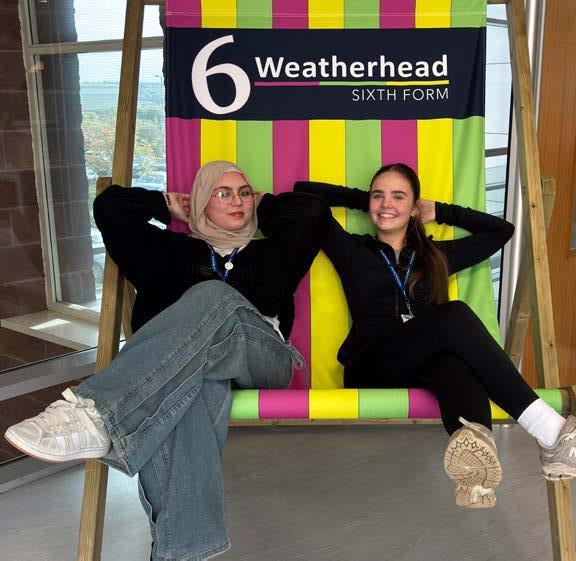
FINANCIAL SUPPORT
What if I cannot afford to stay on in Post 16 education?
No one should feel unable to continue learning because of financial difficulty. At Weatherhead, our bursary programme is intended to ensure that none of our students are disadvantaged and that they are secure in their studies, preparation for university or employment.
Any student who meets the criteria can apply for a discretionary bursary; it is available to maximise students’ successes in their chosen area of study or career. The bursary is available to support the following:
Transport to school
Meals
Essential course costs (books, trips, equipment, materials)
University / Career requirements
Students in priority groups can receive a bursary of up to £1200 per year.
More information is provided on our website.
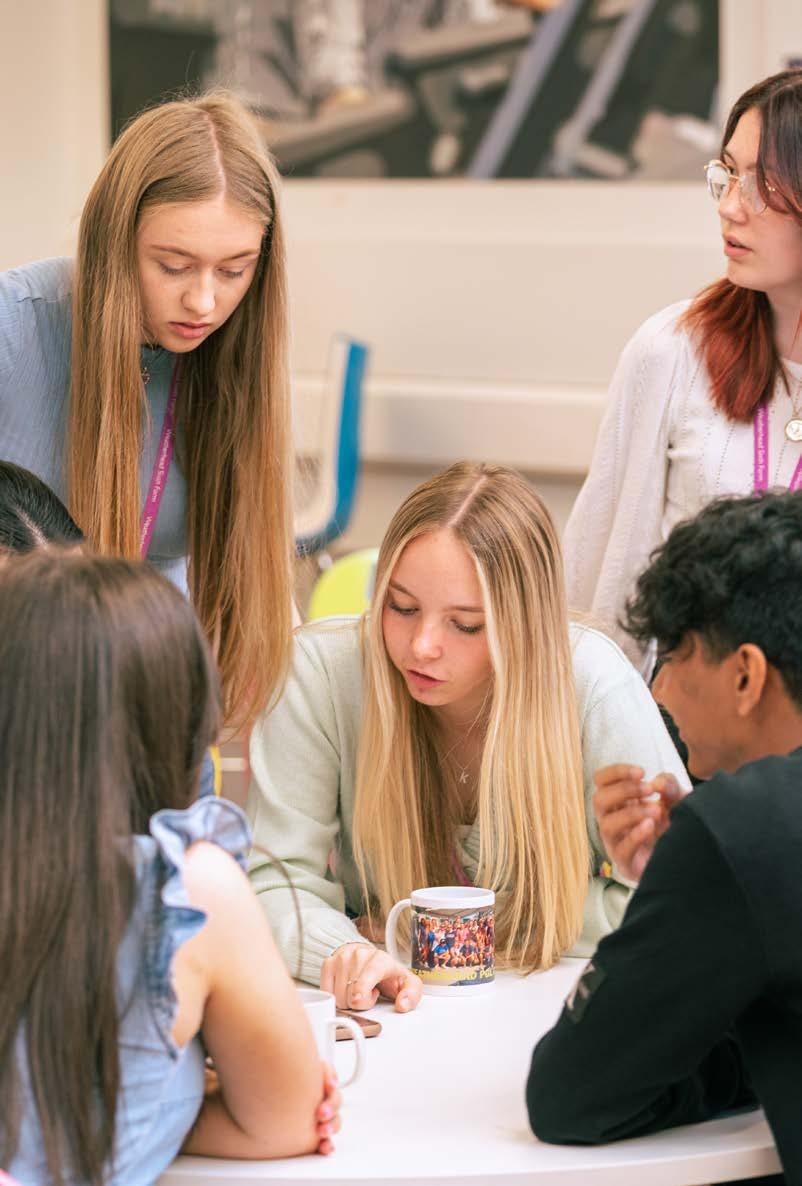

STUDENT TRANSPORT
224 Liscard to Weatherhead High School
Liscard Wallasey Road
Loretto Road
Liscard Road
Church Street
Wheatland Lane
Poulton Road
Mostyn Street
Weatherhead High School
616 Seacombe Ferry to Weatherhead High School
Seacombe Ferry
Poulton Road
Gorsey Lane
Weatherhead High School

227 Prenton to Weatherhead High School
Prenton Woodchurch Road
Cambridge Road
Woodchurch Road
Arrowe Park Road
Upton Village
Weatherhead High School
229 Wallasey Village to Weatherhead High School
Wallasey Village
Mount Pleasant Road
Kirkway
Albion Street
Portland Street
Liscard Crescent
Weatherhead High School
633 Moreton Cross to Weatherhead High School
Moreton Cross
Town Meadow Lane
Moreton Cross
Hoylake Road
Tollemache Road
Birkenhead North Station
Weatherhead High School
635 Moreton Cross to Weatherhead High School
Moreton Cross
Hoylake Road
Chadwick Street
Town Meadow Lane
Bermuda Road
Moreton Cross
Leasowe Station
Wallasey Village
Weatherhead High School More information is provided on the Merseytravel website.

COURSE ENTRY CRITERIA
We consider all applications carefully to ensure that we can offer you the right courses for success in your future. We welcome applications from all students and, although we do set entry criteria, we will also take your references into account.
We offer various routes across A Level, BTEC, AAQs and T Level and Level 2 courses, which are personalised to ensure the right route for you. Unlike many schools and colleges, we create our timetable around what you want to study.
If you have any questions about any aspect of what we offer at Weatherhead Sixth Form, please do not hesitate to get in touch with our Sixth Form team on 0151 631 4401 or ask6f@weatherheadhigh.co.uk / sixthformapps@ weatherheadhigh.co.uk.
Level
3 (A Level / BTEC / AAQ / T Level)
Students must have at least a grade 4 in Mathematics and English and at least 3 other GCSEs (grades 4 or above) to access Level 3 Sixth Form provision.
Students without a grade 4 in Mathematics and/or English may have an individual consultation on suitable post 16 course choices with the Director of Sixth Form.
HOW TO APPLY
1 CHOOSE
Create your dream study programme. Find all of our latest course information online at weatherheadhigh.co.uk/ sixthform. 2 APPLY
Complete an application form on our website. You will then meet with a member of SLT in January. 3
After receiving an offer rand accepting your place, you will be sent the information you need to join us. 4
Once you receive your GCSE results, its time to enrol. We will support you every step of the way.




ART, PHOTOGRAPHY & TEXTILES
Creative intuition
SKILLS COURSES
Investigative & analytical skills
Aesthetic understanding
Critical judgement
Versatility
Adaptability
Productivity
Critical thinking
The business of art
Independence
Digital skills
ART
A Level
Programme: Single
Assessment: Combination of coursework and examination
What will I learn?
The course develops creative skills in drawing, printing, and painting using diverse techniques and themes, while teaching analysis and articulation of ideas in written and practical forms.
Possible Career Paths
• Architect
• Illustrator
• Teacher
• Designer
• Fine Artist
• Tattoo Artist
• Make-up Artist
• Game Design
• Forensic Artist
• Courtroom sketch Artist
• Graphic Designer
• Art Therapist
Photography
A Level
Programme: Single
Assessment: Combination of coursework and examination
Possible Career Paths
• Commercial Photography
• Concept Artist
• Event Photography
• Product Photography
• CGI Artist
• Journalism
• Advertising
Complimentary Courses
• BTEC Business
• Dance
• Drama
• English Language
• Media
• Music
• Photography
• Textiles
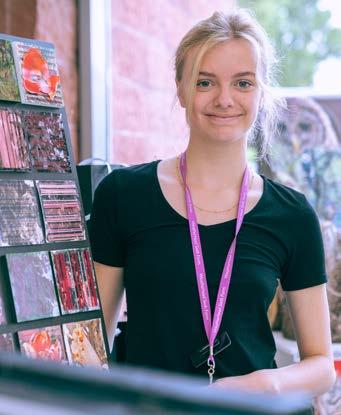
What will I learn?
The course develops creative photography skills over two years, exploring techniques such as slow shutter speed, light drawing, aperture, composition, lighting, and mixed media. Student-chosen themes and artist inspiration will guide projects, while you learn to analyse and present ideas digitally and practically.
• Marketing Complimentary Courses
• Textiles
• Fine Art
• Media
• Film
• Business
• English language
• Music
• Dance
• Drama

The Art, Photography and Textiles courses consistently achieve high grades, including rare full marks. Many students progress to university or apprenticeships.

We also offer a cultural visit to Venice, which helps inspire our students creativity.
Textiles A Level
Level: 3
Duration: 2 Years
Programme: Single
Assessment: Combination of coursework and examination
What will I learn?
The first part of the course will develop creative skills which will be refined over the 2 years. Techniques will include drawing, watercolour, embroidery, drawing with sewing machines, appliqué, printing and silk painting. Themes will be varied and selected by the students. A range of artists and designers will be used to inspire projects. You will learn how to analyse and articulate ideas in both written and practical forms.
Possible Career Paths
• Visual Merchandiser
• Fashion Designer
• Textile Designer
• Fashion Marketing
• Branding
• Stylist
• Buyer
• Teacher
• Tattoo Artist
• Illustrator
Complimentary Courses
• Fine Art
• Photography
• Media
• Business
• English Language
• Music
• Dance
• Drama

BTEC BUSINESS
Communication Teamwork
SKILLS COURSES
Problem Solving
Time Management
Data Analysis
Entrepreneurship
Project Management
Leadership Skills
Interpersonal Skills
BUSINESS
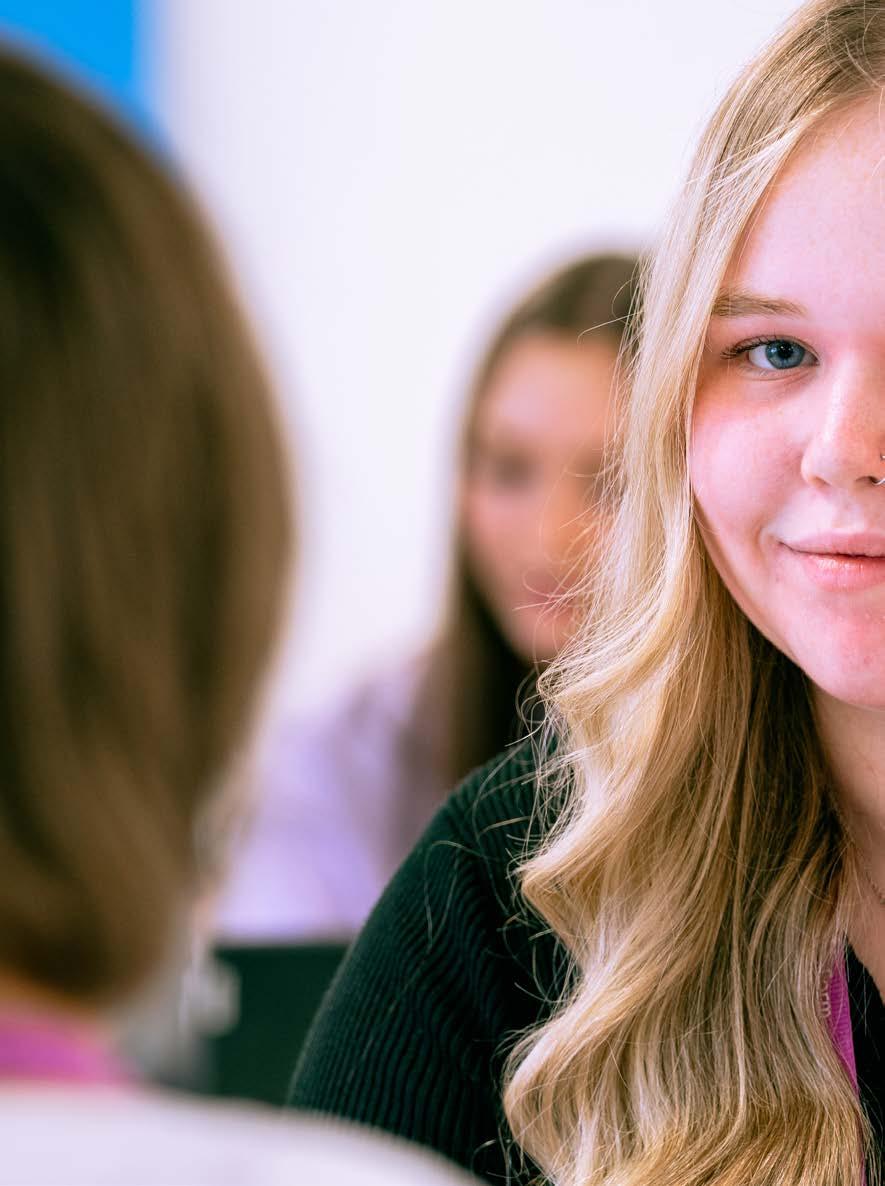
Programme: Single
Assessment: Combination of coursework and examination
What will I learn?
The BTEC National Certificate in Business is a practical, career-focused course covering marketing, finance, business environments, and management. You’ll investigate real businesses, apply learning to real scenarios, and build skills in communication, teamwork, and problem-solving. Assessment includes coursework, a finance exam, and a timed marketing task where you analyse data and create a strategy.
Possible Career Paths
• Business Analyst
• Business Project Manager
• Customer Services Manager
• Digital Marketer
• Financial Adviser
• Human Resources
• Investment Analyst
• Management Consultant
• Sales Manager
• Social Media Manager 100% Distinction*Merit 76% Distinction*Distinction

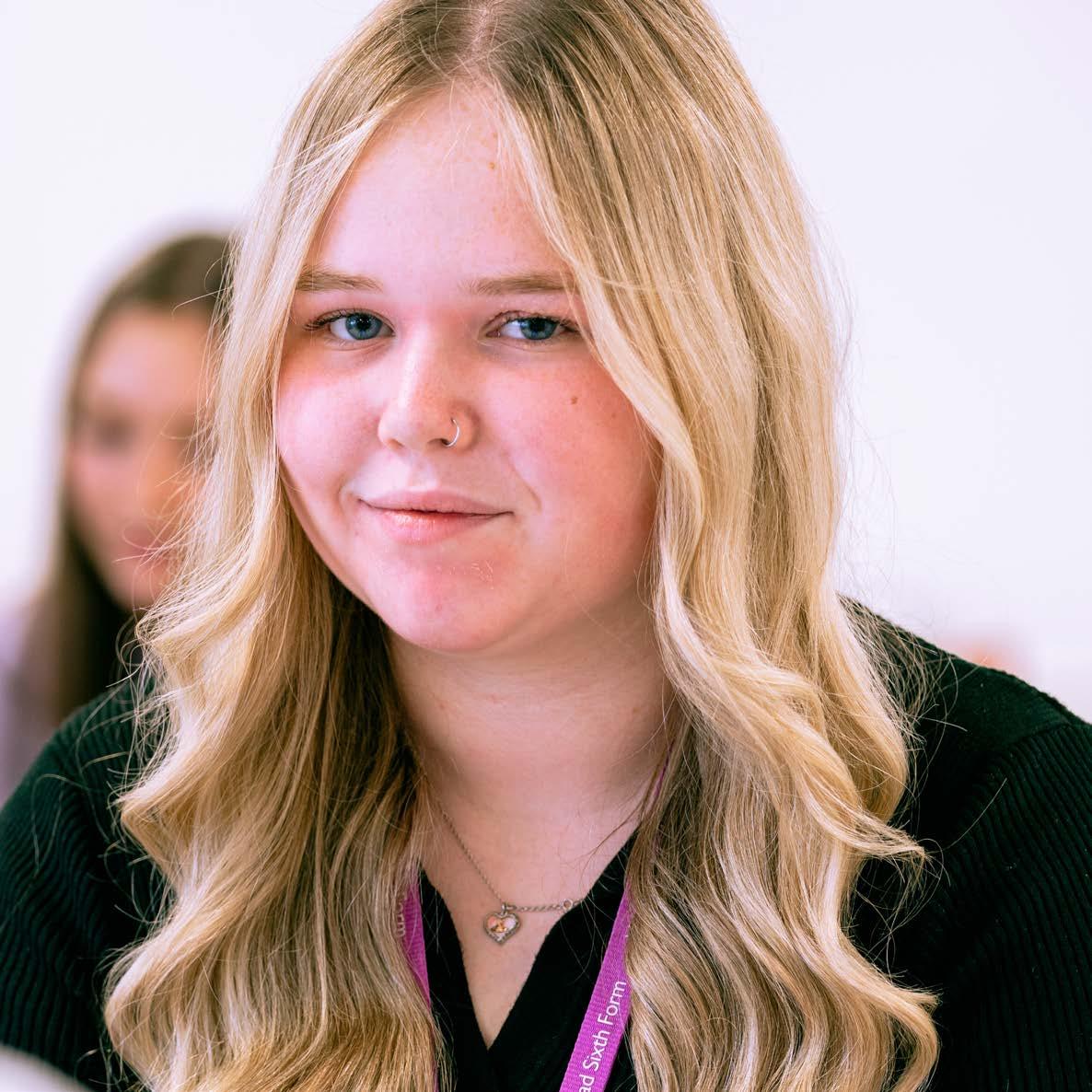
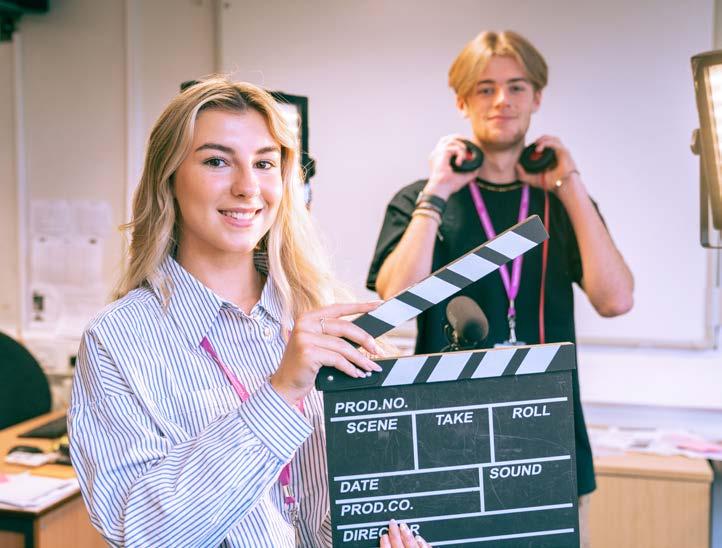
CREATIVE DIGITAL MEDIA & FILM STUDIES
Critical analysis
Debate and discussion
Written communication
Time management and organisation
Independent working
Planning and researching
SKILLS COURSES
Sound recording
Team work
Problem solving
Working to deadlines
Technical equipment and software skills
Project management
Team building
Creative Digital Media
Programme: Single
Assessment: Combination of coursework and examination
What will I learn?
You’ll explore how TV, film, games, and music videos create meaning. You’ll learn the essentials of pre-production, from planning and budgeting to logistics, before putting your skills into practice. With real-world briefs and hands-on training, you’ll research, film, and edit your own short film in a genre you love. Get ready to be creative and analytical!
Possible Career Paths
• Camera Operator
• Video Editor
• Production Manager
• Location Scout
• Technical Effects
• Journalist
Complimentary Courses
• BTEC Business
• Sociology
• English Literature
• Psychology
• Drama
The Creative Industries are one of the UK’s fastest-growing sectors. In the Liverpool City Region alone, there are over 144 creative content companies, 70% of which are based in the city itself—spanning film, media, and games.
The department ranks in the top 10% of schools and colleges nationwide for this course, with many students achieving Distinction* or Distinction.
FILM STUDIES
A Level
Level:
3 Duration:
2 Years Programme: Single Assessment: Combination of coursework and examination
Possible Career Paths
• Director
• Producer
• Screenwriter
• Editor
• Cinematographer
• Costume Designer
• Visual Effects
• Journalism
What will I learn?
Love movies? Want to know what makes them great?
You won’t just watch films – you’ll explore them: from Hollywood hits and American and British indies to world cinema, documentaries, silent films, and more. Learn how films are made, what they mean, and how they shape audiences across history and cultures.
And it’s not all theory – you’ll also get hands-on with film-making or screen writing, putting your ideas into practice.
Ready to discover the magic of movies?
Complimentary Courses
• English Literature
• History
• Sociology
• Drama
• Psychology
80% A-B pass exam results
60% A*-A Coursework results
Many Russell Group universities offer Film Studies degrees, including Warwick, King’s College London and Durham University.
You can even study it at Cambridge, Oxford or St Andrews.

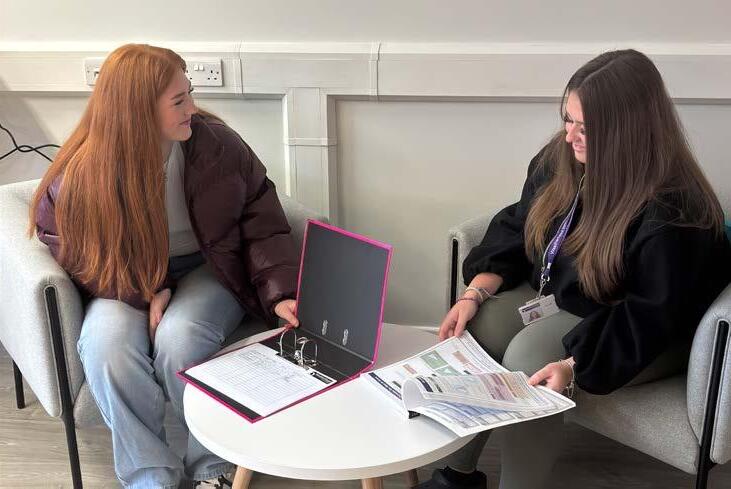
ENGLISH LANGUAGE, ENGLISH LITERATURE AND SPANISH
Communication
Critical reasoning and analysis
Independent working
Planning and researching
Effectively conveying arguments
Creative thinking
SKILLS COURSES
Presentation skills
Time management and organisation
Interpersonal skills
Research and analytic skills
Organisational skills
English Language A
Level
Level:
3
Duration:
2 Years Programme: Single Assessment: Combination of coursework and examination
What will I learn?
A Level English Language explores real-world language use, representation, and its impact on society, including stereotypes. Students also attend the English Language Conference to hear from leading linguists.
The core competency of this course involves mastering the sophisticated linguistic analysis of a vast range of texts, from children’s literature to advertisements and unseen articles, by applying precise and advanced terminology to evaluate how contextual factors and linguistic features collaboratively construct specific meanings and social representations. This analytical skill is deeply informed by the understanding and application of historical and current psycholinguistic and sociolinguistic theories, which are used to interpret data, assess the validity of research, and facilitate the comparison of text types, sometimes across time. Crucially, students must conduct independent research and wider reading to foster critical engagement with language issues, enabling them to form and express independent opinions on how language affects society, particularly concerning representations of race and gender, while simultaneously developing versatile writing skills for diverse audiences and purposes, including analytical essays and opinion-based commentary.
Possible Career Paths
• Journalism and Media
• Law
• Publishing
• Teaching
• Speech and Language Therapy
• Marketing and PR
• Law Enforcement Complimentary Courses
• English Literature
• Sociology
• History
• Psychology
• EPQ
• Media Studies
• Film Studies
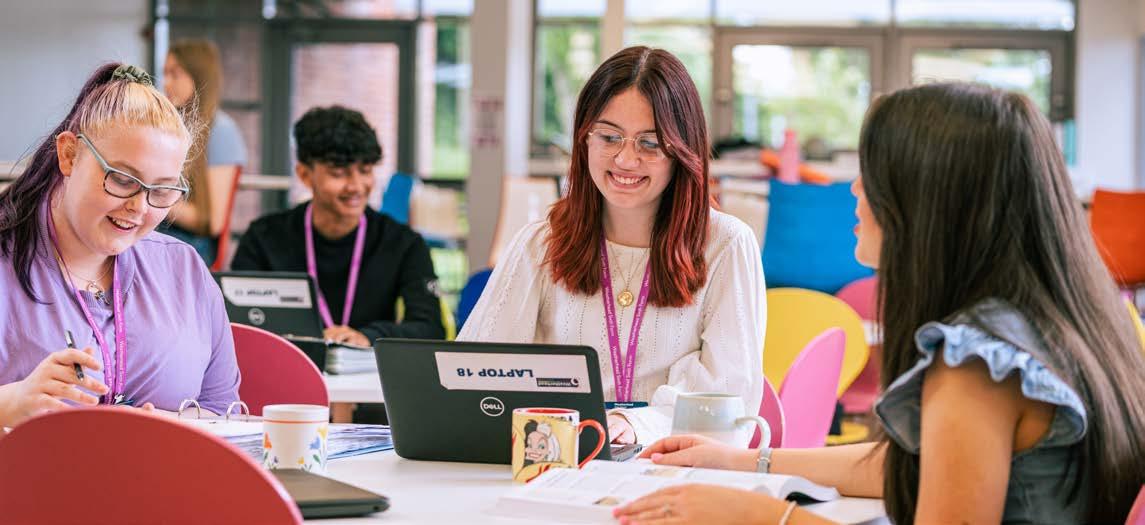
ENGLISH LITERATURE
A Level
Level:
3
Duration:
2 Years
Programme: Single Assessment: Combination of coursework and examination
What will I learn?
This course deepens your engagement with some of the most influential texts ever written, sharpening the skills needed for academic success. Our love through the ages component takes you on an exhilarating journey exploring desire and heartbreak across time, where you’ll study Shakespeare’s powerful tragedy, Othello, before moving on to F. Scott Fitzgerald’s The Great Gatsby to examine the allure and decay of the American Dream, all complemented by a wide selection of pre- and post-1900 poetry. Additionally, you’ll gain poignant insight into the Literature of Conflict by analysing R.C. Sherriff’s Journey’s End alongside a curated selection of First World War poetry. To truly master the art of academic writing, you’ll learn how to structure sophisticated arguments, use advanced critical terminology, and effectively integrate quotations, ultimately preparing you for universitylevel study. Finally, you get to pursue your own independent literary interests through a coursework component where you compare two texts of your choice using your own critical or theoretical lens.
Possible Career Paths
• Media and Journalism
• Law
• Publishing
• Paralegal
• Editor
• Teacher
• Writer/Copy Writer
• Creative Writer
• Marketing and PR

SPANISH A Level
Level:
3
Duration: 2 Years
Complimentary Courses
• English Language
• History
• Sociology
• Religious Studies
• Psychology
• EPQ
In recent years, English Literature students have gone on to study English at Oxford and Cambridge University. A testament to the high standards, academic ambition, and passionate teaching within our department.
Programme: Single
Assessment: Combination of coursework and examination
What will I learn?
A-Level Spanish with AQA develops advanced language skills and deepens understanding of Hispanic culture, politics, and society. You’ll explore topics like youth culture, multiculturalism, and political movements, and analyse texts and films such as La casa de Bernarda Alba and El laberinto del fauno. By the end of the course, you’ll be equipped with the linguistic ability and cultural insight to thrive in a global world — whether continuing your studies, working abroad, or simply becoming a more confident, informed linguist.
Possible Career Paths
• International Business
• Translation
• Tourism
• Teacher
• Media
• Politics
• Law
• Technology
Complimentary Courses
• English Language
• English Literature
• History
• Art
• Film Studies
• Media
• Sociology
• Geography
A-Level Spanish opens communication with over 480 million native speakers across more than 20 countries, from Spain to Latin America.
A-Level Spanish combines advanced language skills with cultural, political, and social insight, enabling confident communication and critical engagement with global issues.
EXTENDED PROJECT QUALIFICATION
SKILLS
Independent research management
Critical evaluation
Academic writing and referencing
Synthesis and analysis
Presentation and communication
Reflective practice
COURSE
Extended Project Qualification
What will I learn?
Duration:
1 Year
Programme: Single
Assessment: Practical or written assessments
If you’re aiming for a highly competitive university course or a challenging professional career, an EPQ provides concrete evidence of your passion and dedication. Use it to explore a niche area of your subject, proving to admissions tutors and future interviewers that you have the initiative and sustained interest required to excel.
Students interested in further independent study may choose to undertake the Extended Project Qualification (EPQ). The EPQ is an independent qualification that essentially teaches you how to “do” university-level research. You get to choose a topic you love, define a research question, conduct deep critical research, and manage a long-term project from start to finish. It’s fantastic preparation for university, as it teaches you how to evaluate complex sources, synthesize information, and master advanced academic writing and referencing. As the final product of the EPQ, students can produce either a 5,000-word written dissertation or a product (such as an artwork, piece of software, or event) accompanied by a 1,000-word research report. Crucially, a completed EPQ is worth up to 28 UCAS points, which is the equivalent of an A* grade at AS Level, significantly boosting your university application.
Possible Career Paths
• Law
• Politics and International Relations
• Medicine
• Engineering
• Teaching
• Nursing
• Journalism
• Social Work
• Dentistry
• Educational Psychologist
Complimentary Courses
• History
• English Language
• English Literature
• Psychology
• Mathematics
• Sociology
• Biology
• Chemistry
• Physics
• Geography
• Physical Education
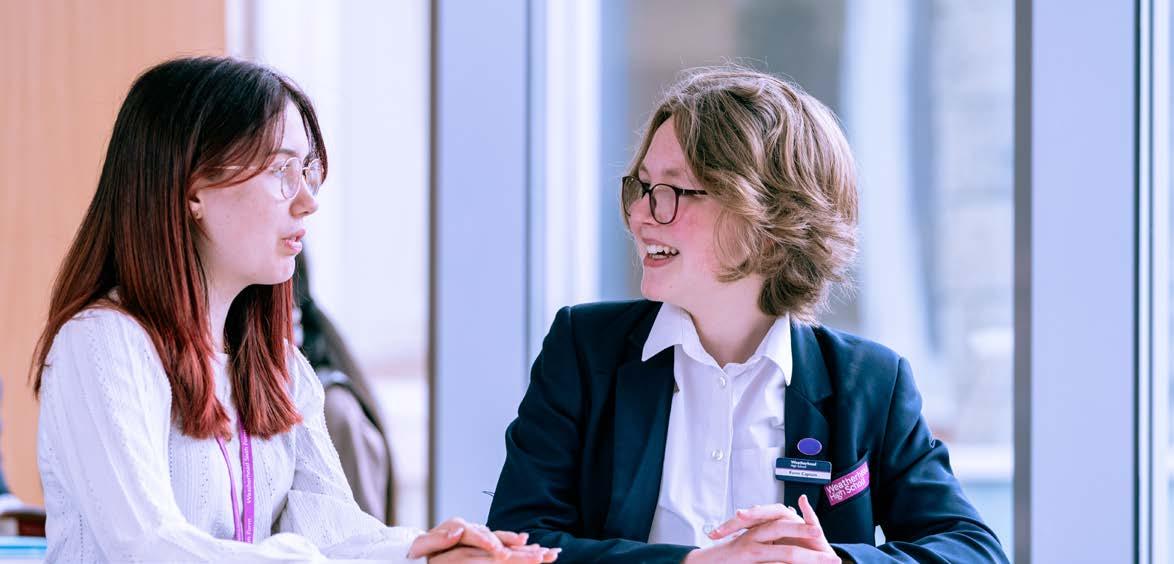
Students have gone on to Oxbridge and many Russell Group universities, using their EPQ.
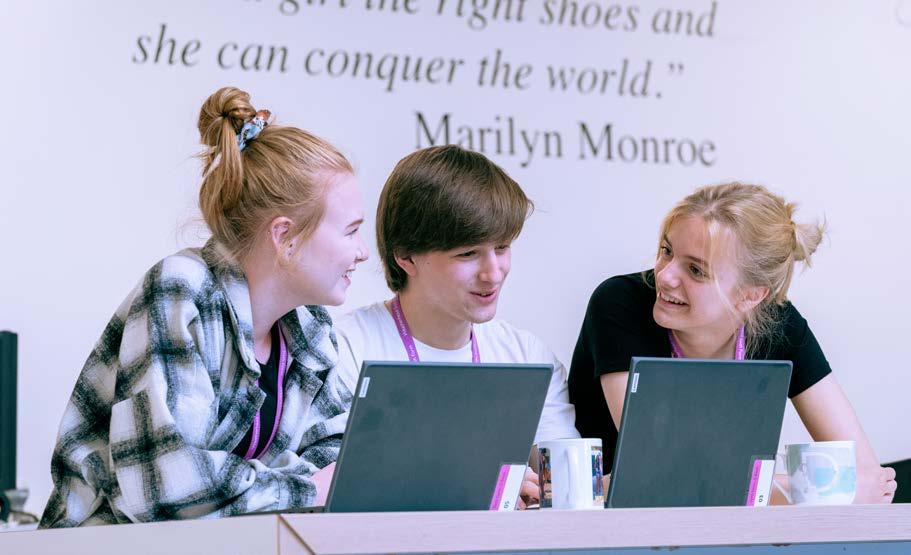
GEOGRAPHY, HISTORY & RELIGIOUS STUDIES
Digital skills
Research
Examination
Handling complex information
Presentation skills
Oral communication skills
Debate skills
Interpersonal skills
Key literacy skills
Critical thinking
Analytical skills
Teamwork
Scientific reasoning
SKILLS COURSES
Geography
A Level
Programme: Single Assessment: Combination of coursework and examination
Possible Career Paths
• Geographic Information Systems Specialist
• Cartographer
• Ecologist
• Environmental Consultant
• Remote sensing Specialist
• Geologist
• Government Advisor
• Transportation Planner
What will I learn?
On the AQA A-level Geography course, you’ll explore exciting and relevant topics that help you understand both the physical and human world. In Physical Geography, you’ll study Coastal Systems and Landscapes, Water and Carbon Cycles, and Hazards, gaining insight into natural processes, environmental change and risk management. In Human Geography, you’ll explore Changing Places, Contemporary Urban Environments, and Global Governance, looking at how places are shaped, how cities evolve, and how global systems connect people and nations. A highlight of the course is the Non-Examined Assessment (NEA) an independent investigation supported by a residential trip to Betws-y-Coed with the Field Studies Council. During this trip, you’ll carry out a human geography study in Llandudno and coastal fieldwork along Criccieth beach, developing the skills and data needed for your own research project. The NEA makes up 20% of your final grade and gives you the chance to think, and work, like a true geographer.
Complimentary Courses
• Sociology
• Physics
• Chemistry
• Biology
• Maths
A-Level Geographers can take an unforgettable trip to Iceland, exploring waterfalls, glaciers, geysers, volcanic landscapes, and tectonic plates, bringing classroom concepts to life with expert guides and hands-on experiences.
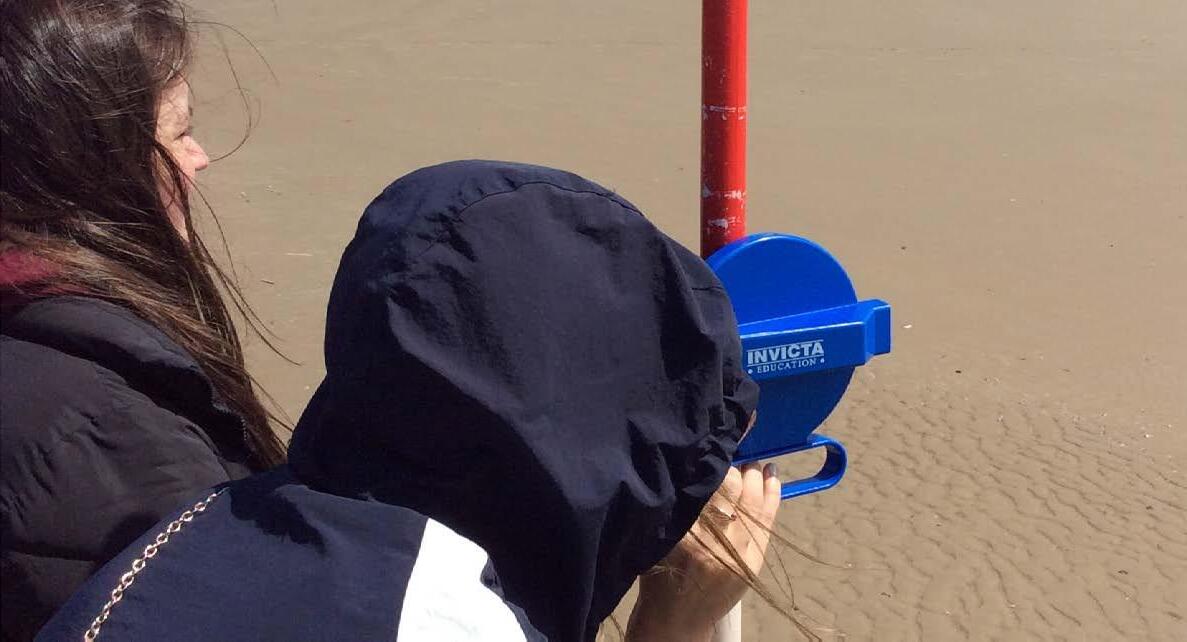
A Level
Level: 3
Duration: 2 Years
Programme: Single
Assessment:
Combination of coursework and examination
What will I learn?
In your European History unit, you will delve into the fascinating history of Germany, exploring the dramatic changes in political authority from the German Empire all the way through to the birth of democracy (1871-1929). Following this, you will then study the impact of Nazism, the Second World War, and division in Germany (1929-1991). You will gain insight into the crucial role of ideas and ideology, explore economic and social developments, and examine the influence of key individuals and groups throughout these periods. In your British History lessons, you will explore the tumultuous period that was the Wars of the Roses, where rival factions battled to take control of the English crown. For your NEA, you will produce an essay based on independent research, researching the fascinating topic that is African-American civil rights after the American Civil War.
Possible Career Paths
• Museum curation
• Journalism
• Law
• Teaching
• Researcher
• Police
• Archaeology
Religious Studies
A Level
Level: 3
Duration:
2 Years
Complimentary Courses
• English Language
• English Literature
• Sociology
• Religious Studies
A-Level History students can take a 5-day Berlin trip, visiting sites like Sachsenhausen concentration camp, Checkpoint Charlie, and the Eastside Gallery to explore Germany’s history.
Programme: Single
Assessment:
Combination of coursework and examination
What will I learn?
If you are fascinated by the big questions about existence, morality and belief, then this is the course for you. In Philosophy, you will wrestle with deep philosophical questions around God, belief, and the problem of evil. You will explore powerful arguments, analyse key thinkers, and develop your own critical voice. In Ethics, you’ll explore big moral questions that affect the real world, from the ethics of euthanasia and business to sexual ethics. You’ll study influential ethical theories and thinkers and apply their ideas to contemporary issues. The final component offers a closer look at Christianity, exploring its core beliefs, values, and practices. You’ll examine how these beliefs have evolved over time, how they respond to modern challenges and what they mean in today’s world. From sacred texts to social action - this is religion in real life.
Possible Career Paths
• Law
• Teaching
• Police
• Social Work
• Journalism
Complimentary Courses
• English Literature
• History
• Sociology
• Psychology
Philosophy and Theology graduates are among the most employable humanities students! According to UK Higher Education statistics, Philosophy graduates consistently rank highly for graduate employment and earnings often earning more than those with degrees in business, biology, or psychology just a few years after graduation.
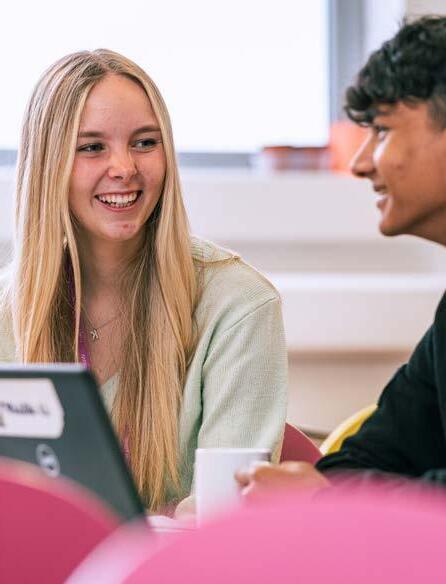
AAQ
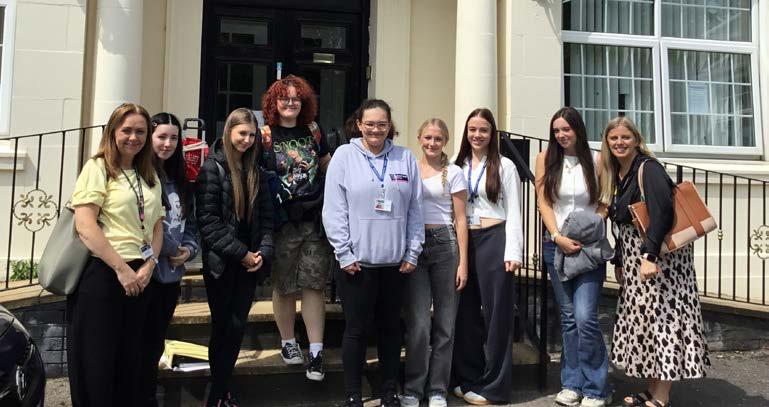
HEALTH AND SOCIAL CARE, EDUCATION AND EARLY YEARS, MENTAL HEALTH
Teamwork
Written and verbal communication skills
Independent working
Reflective practice
Problem solving
Research skills
Adaptability
SKILLS COURSES
Empathy
Confidence
Resilience
Critical analysis
Applications of knowledge
Professionalism

Health and Social Care
What will I learn?
Programme: Single
Duration:
2 Years
Assessment:
Combination of coursework and examination
This Health and Social Care course is ideal for those pursuing careers in the sector. You’ll study Equality and Diversity, Anatomy and Physiology, person-centred care, and support for people with long-term illnesses, and sexual or reproductive health needs. All units link directly to industry practice through real-life scenarios.
Possible Career Paths
• Nursing
• Midwifery
• Occupational Therapy
• Speech and Language Therapy
• Paramedic
• Physiotherapy
• Social Work
• Support Work
• Carer
MENTAL HEALTH
Programme: Single
Duration:
2 Years
Assessment: Combination of examination and controlled assessments
What will I learn?
You will learn about: Fundamentals of mental health and the individual, Mental health, wellbeing and society, Supporting and promoting mental health and wellbeing in organisations and Community-based support for mental health and wellbeing. This qualification is ideal for those who wish to understand more about Mental Health and can complement your Health & Social Care studies or be studied in its own right.
Complimentary Courses
• BTEC Business
• Applied Science
• Psychology
• Sociology
• BTEC Sport
• Physical Education
• English Language
Possible Career Paths
• Counselling
• Psychologist
• Nursing
• Midwifery
• Occupational Therapy
• Speech and Language Therapy
• Paramedic
• Physiotherapy
• Social Work
• Support Work
• Carer
Students have the opportunity to complete the brand new and innovative KS5 Certificate in Dementia Awareness alongside their HSC studies. Weatherhead is the only establishment in the country to offer this course, in partnership with House of memories at Liverpool Museums.
Complimentary Courses
• AAQ in Health & Social Care
• BTEC Business
• BTEC Applied Science
• Psychology
• Sociology
• BTEC Sport
• Physical Education
• English Language
About 1 in 4 adults will experience a mental health problem each year. Studying this course will help you to understand and support those individuals within society.
Education and Early Years
T Level
Level: 3
Duration:
2 Years
Programme: Triple Assessment: Combination of examination, observations and Employer set project.
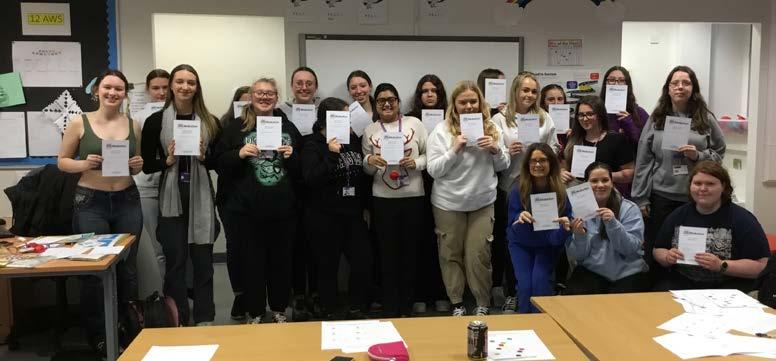
What will I learn?
The course covers: educational settings, child development, learning and teaching, safeguarding and equality, supporting SEND, partnership working, professional development, presentation skills, and experience with children aged 0–7 in vocational settings
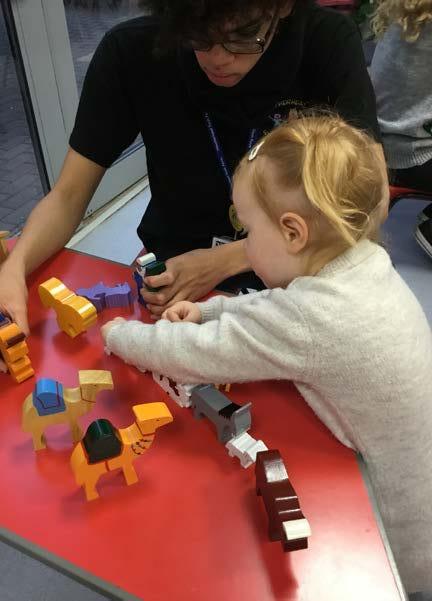
Possible Career Paths
• Nursery Nurse
• Teaching Assistant
• Nursing
• Social Work
• Speech and Language Therapist
• Play Therapist
Level 3 students’ and staff run Weathertots playgroup and take part in Makaton training, a Forest School taster, and an emergency first aid course.
Early Childhood Development
AAQ
Level: 3
Duration: 2 Years
Programme: Single Assessment: Combination of examination and controlled assessments
Possible Career Paths
• Nursery Nurse
• Teaching Assistant
• Nursing
• Social Work
• Speech and Language Therapist
• Play Therapist
What will I learn?
The course explores safeguarding, child growth and development, supporting play and learning, early childhood research, and the value of reflective practice. You will also gain experience with children aged 0–7 in vocational settings.
Complimentary Courses
• AAQ Health & Social Care
• Psychology
• Sociology
• History
• BTEC Business
• English Language You will study child development from 0–8 years, explore learning theories, and have the opportunity to combine childcare with other subjects.
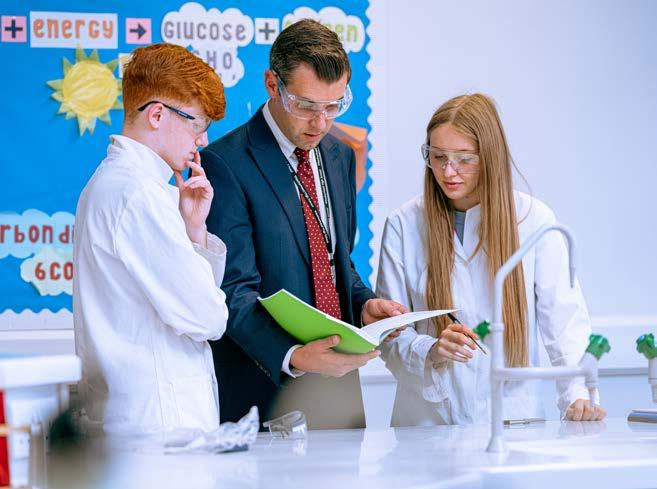
MATHS, SINGLE SCIENCE AND AAQ APPLIED SCIENCE
Cognitive and problem-solving skills
Interpersonal skills
Independent learning
Presentation skills
Mathematical reasoning
Data analysis
Evaluation of practical methods
SKILLS COURSES
Time management
Communication skills
Research skills
Logical reasoning
Critical thinking
Resilience and perseverance
Teamwork and collaboration
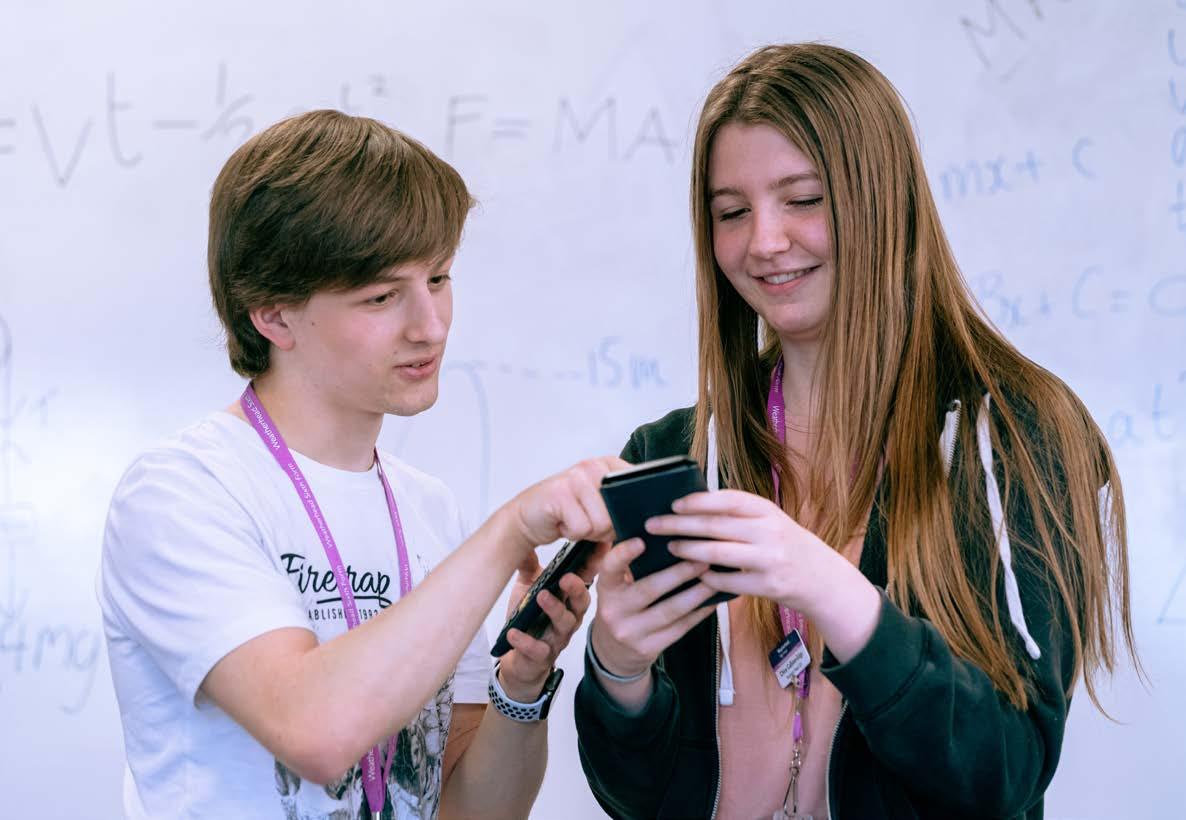
What will I learn?
Edexcel A-Level Maths develops problem-solving skills across Pure Mathematics, Statistics, and Mechanics. Topics include algebra, functions, calculus, trigonometry, vectors, and proof (Pure); data analysis, probability, distributions, and hypothesis testing (Statistics); and motion, forces, equilibrium, and projectiles (Mechanics).
Programme: Single
Assessment:
Possible Career Paths
• Engineering
• Finance
• Data science
• Actuarial Science
• Computer Science
• Teaching
• Research
• Economics
A-Level Mathematics boosts lifetime earnings by 7–11%, with even higher gains for women in STEM, and provides skills valued across many professions.
BIOLOGY A Level
Level: 3
Duration: 2 Years Programme: Single Assessment: 100% Examination
What will I learn?
Biology will continue to develop your knowledge and understanding of all life processes opening an opportunity to explore and investigate a diverse range of concepts. If you are fascinated by life, enjoy hands-on practical experience as well as developing data handling skills to enhance your mathematical abilities, then Biology is the right course for you. Not only does it provide a framework for further study it opens many doors to future employment. It will introduce you to recent biological advances including the influence of genetics, environmental issues as well as some ethical and technological aspects of natural sciences.
Possible Career Paths
• Medical Biologist
• Veterinary Medicine
• Dentistry
• Nursing
• Physiotherapy
• Forensic Scientist
• Biomedical Scientist
• Sports Scientist
• Zoologist
• Pharmaceutical Scientist Complimentary Courses
• Chemistry
• Mathematics
• Physics
• Psychology
• Physical Education
A Level Biology offers hands-on fieldwork, data analysis, and opportunities like trips to Chester Zoo, all within a supportive environment to help you reach your potential.
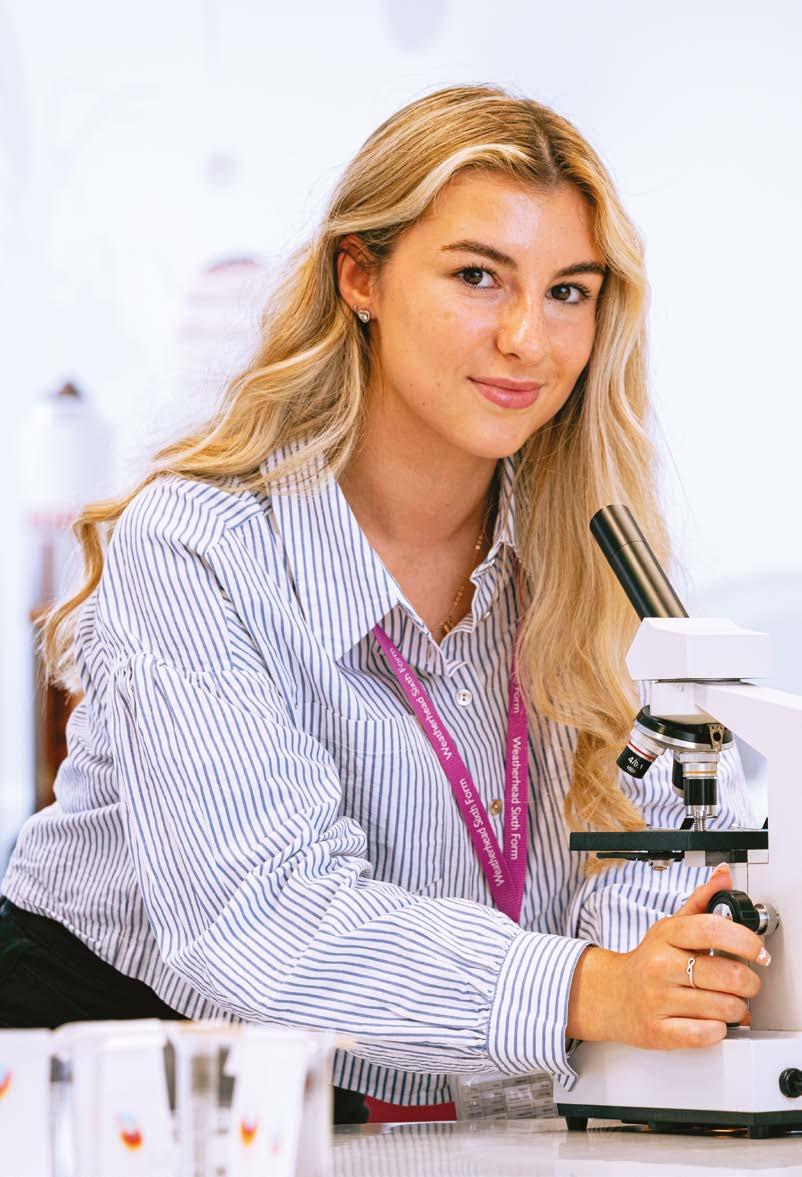
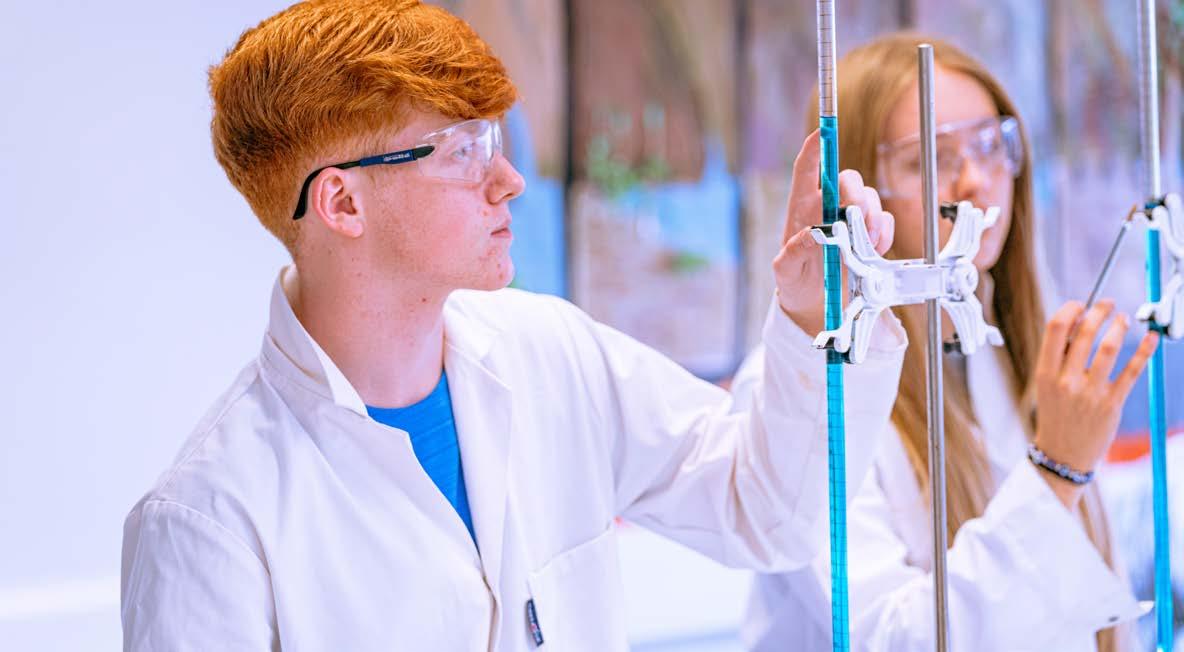
Chemistry
A Level
Duration: 2 Years
What will I learn?
Chemistry is split into Inorganic, Physical and Organic chemistry. Physical is the largest part of the syllabus and covers how atoms combine into molecules, their shapes and the details of why reactions occur. Inorganic looks at specific elements in the periodic table and introduces the transition metals. Organic covers the reaction mechanisms of carbon-based molecules and their analysis. Programme: Single
Assessment: 100% Examination
Possible Career Paths
• Medicine
• Dentistry
• Veterinary Science
• Pharmaceutical Science
• Chemical Engineering
• Biotechnology
• Laboratory Technician
Complimentary Courses
• Biology
• Mathematics
• Physics
Chemistry graduates have the highest levels of full-time employment (55%). Chemical scientists’ median salary is £7,500 more than the UK median average for other job postings. The chemical sciences workforce is projected to grow 30% faster than the overall UK labour market by 2032.
PHYSICS A Level
Level:
3
Duration: 2 Years
Programme: Single Assessment: Examination only
What will I learn?
Study Physics will see you explore a whole host of fascinating topics including particles, quantum phenomena, thermal physics, electric fields, nuclear physics and many more. Throughout the course, core activities form a thread linking theoretical knowledge to practical scenarios building a broad working knowledge.
Possible Career Paths
• Engineering
• Medicine
• Forensic Science
• Data Science
• Research
Black holes are real objects with gravity so strong that even light can’t escape. Recent physics research allowed us to capture the first-ever image of one in 2019!
APPLIED SCIENCE AAQ
Level: 3
Duration: 2 Years Programme: Single Assessment: Combination of coursework and examination
What will I learn?
Biology: Study cells, tissues, biological molecules, cell transport, and enzyme activity.
Chemistry: Review atomic structure and bonding, then explore periodicity, energetics, and kinetics.
Physics: Apply practical and mathematical skills to waves, motion, electricity, and energy.
Possible Career Paths
• Forensic Scientist
• Research Scientist
• Nurse
• Environmental Scientist
• Engineer
• Physiotherapist
Complimentary Courses
• Psychology
• Sociology
• Geography
• Physical Education
• BTEC Sport
• Health and Social AAQ
The human body contains enough DNA to reach from the Sun to Pluto and back; many elements originate from stars; and physics underpins technologies like the internet through light and wave principles.

PERFORMING ARTS, DANCE, DRAMA AND MUSIC
Independent learning
Teamwork
Performance and presentation
Listening
Analytical and essay writing
Confidence and self-esteem
Creativity and self-expression
SKILLS COURSES
Public speaking
Communication
Discipline
Organisation
Collaboration
Problem-solving
Self-assessment
Leadership
Coordination
Due to the reforms taking place at level 3 we are developing new qualifications for first teaching from September 2026.
We intend to develop new qualifications for small Alternative Academic Qualifications (AAQs) and large AAQs. We intend to deliver a small AAQ in Digital Music Production and Music Performance, and deliver a small AAQ in Performing Arts
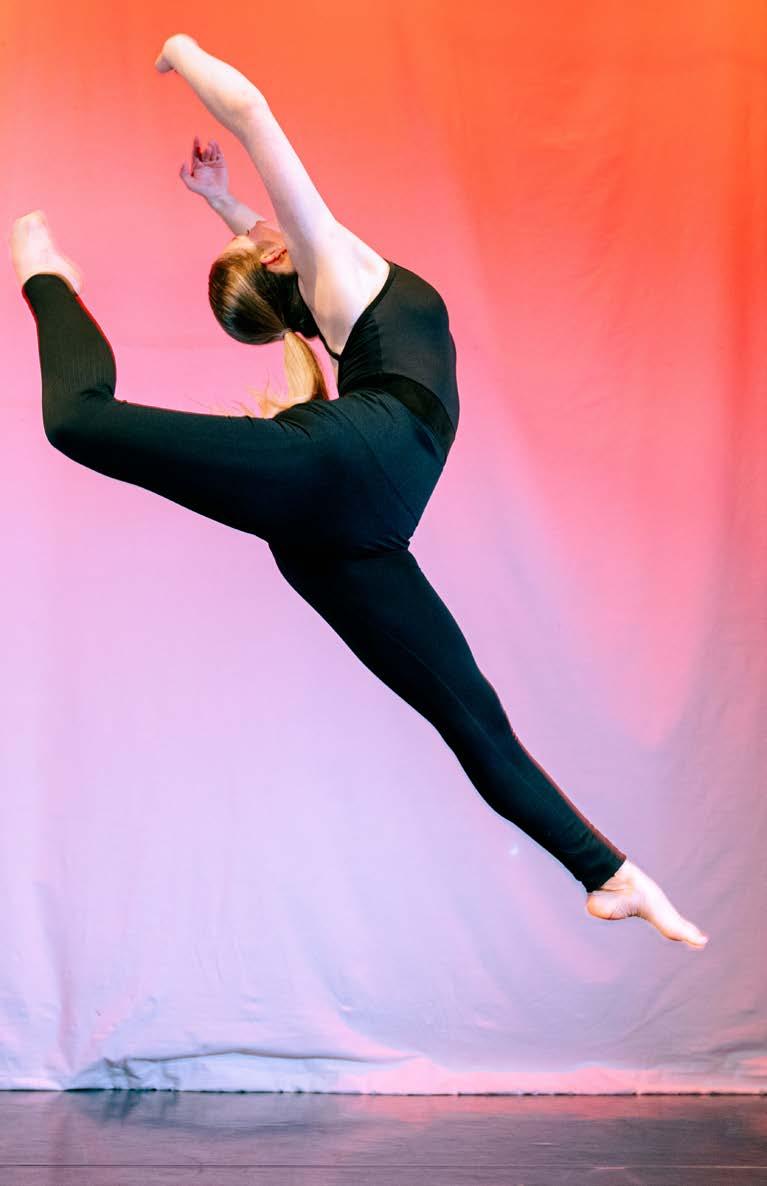
Combination of coursework and examination
A Level Dance at Weatherhead offers a dynamic and creative environment where students develop advanced skills in performance, choreography and dance analysis. You will explore the work of leading practitioners, including the internationally acclaimed Rambert Dance Company, and study a range of professional works and dance history to support your written exam. You’ll also create and perform both solo and group choreography and learn set repertoire to perform as an ensemble. Throughout the course, there are regular opportunities to perform, including our REACH Dance Show, the annual school production, A Level Showcases and external events across the region.
Possible Career Paths
Dance Movement Therapist
Complimentary Courses
• Drama and Theatre Studies
• Physical Education
• Music
• English Literature
• English Language
• Art and Design
• Psychology
• Media Studies
• Film Studies
• Sociology
Students can also apply for leadership roles as Dance Captains, supporting choreography, rehearsals and backstage organisation in both school productions and extra-curricular projects. We provide a rich programme of enrichment, including workshops with professional artists, theatre visits to see companies such as Rambert, Matthew Bourne’s New Adventures and Motionhouse, and career guidance to support progression into dance training, university or related industries.
Drama and Theatre A Level
Level:
3
Duration:
2 Years
Programme: Single
Assessment: Combination of coursework and examination
What will I learn?
Drama & theatre studies will introduce you to acting techniques by applying the methods of various theatre practitioners to your performances. You will have the opportunity to explore set plays, and experience live theatre. You’ll perform, direct, or design in a chosen style, complete a practical exam, and prepare for the written paper. Along the way, you’ll build confidence, teamwork, communication, and creative thinking—skills that empower you to create theatre that inspires and engages.
Possible Career Paths
• Actor / Performer
• Theatre Director
• Scriptwriter
• Stage Manager
• Theatre Technician
• Set Designer
• Costume Designer
• Drama Teacher
• Drama Therapist
• TV / Film / Radio Producer
• Voiceover Artist
• Presenter
Complimentary Courses
• English Literature
• English Language
• Music
• Dance
• Sociology
• History
• Media Studies
• Business Studies
• Film Studies
MUSIC BTEC
Level:
3
Duration: 2 Years
What will I learn?
Programme: Single
Assessment: Combination of coursework and examination
You will study music theory, the music industry, ensemble performance, and solo instrumental skills. Year 12 focuses on building foundations and completing the music industry and solo performance components in the Summer term. Year 13 continues theory and ensemble work, with the option to resit the music industry component in January if needed.
Possible Career Paths
• Musician
• Live sound Technician
• Music Producer
• Composer
• Arranger
• Music Manager
• Promoter
• Music Journalist
• Critic
Complimentary Courses
• Drama and Theatre Studies
• Physical Education
• Dance English Literature or Language
• Art and Design
• Psychology
• Media Studies or Film Studies
• Sociology

At Weatherhead, Music students perform in concerts, organise and promote events, and run gigs on our outdoor stage. They engage with the local Music Hub, explore alternative venues, and attend live performances to expand their repertoire. With excellent facilities and expert staff, students gain valuable performance experience and industry insight.
PHYSICAL EDUCATION AND SPORT
Coaching
SKILLS COURSES
Teamwork Communication
Application Organisation
Confidence
Leadership Research
Evaluation and analysis
Employability skills
Time management
Duration: 2 Years
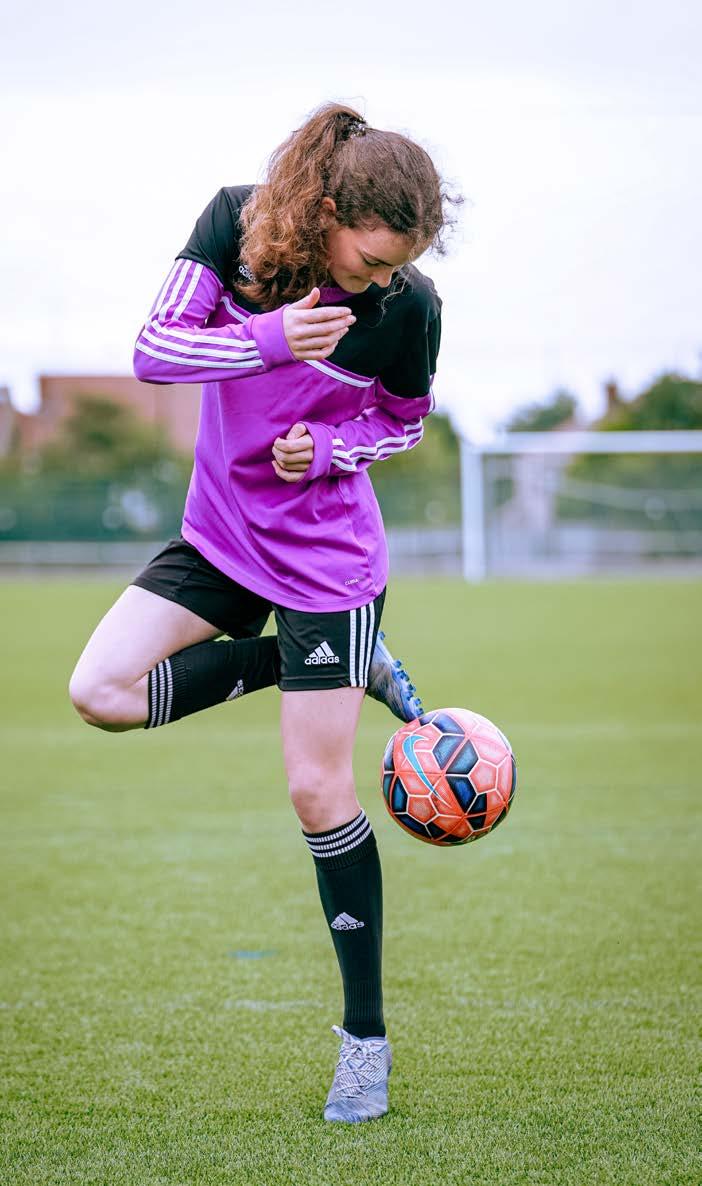
Physical Education A Level
Programme: Single
Assessment:
Combination of coursework and examination
What will I learn?
A Level PE offers a dynamic blend of theoretical and practical study, exploring how the body and mind influence sporting performance. You will gain in-depth knowledge of anatomy, physiology, biomechanics, psychology, and the role of sport in society. The course also develops understanding of skill acquisition, training methods, and the impact of modern technology in sport. Alongside written exams, you will be assessed in one chosen sport—either as a performer or coach—and complete an in-depth performance analysis. This engaging course is ideal for those passionate about sport, fitness, and human performance.
Possible Career Paths
• Sports Scientist
• Exercise Physiologist
• Nutritionist
• Sports Nutritionist
• Physiotherapist
• Occupational Therapist
• Health and Fitness Adviser
• PE Teacher
• Sports Coach
• Personal Trainer
Complimentary Courses
• Biology
• Psychology
• Mathematics
• Health and Social Care
• Business Studies
• Sociology
We offer the Level 2 Sports Leaders Programme and trips such as a water sports adventure in Costa Brava and a summer visit to Wimbledon.
Sport BTEC
What will I learn?
The BTEC Level 3 National Extended Certificate in Sport is a qualification that provides a strong foundation in the science, business, and practical application of the sports industry. Students will learn about the human body and how it responds to exercise, developing an understanding of anatomy, physiology, and sports nutrition. They will gain essential skills in fitness testing and programming, learning to design and evaluate personalized training plans. Additionally, the course explores the diverse career opportunities within the sector, giving students insight into the working life of the industry, and allows them to practically develop their skills and tactics in specific sporting activities.
Possible Career Paths
• Sports Scientist
• Exercise Physiologist
• Nutritionist / Sports Nutritionist
• Physiotherapist
• Occupational Therapist
• Health and Fitness Adviser
• PE Teacher Sports Coach Personal Trainer
Complimentary Courses
• Biology
• Business Studies
• Psychology
• Sociology
• Applied Science
• Health and Social Care
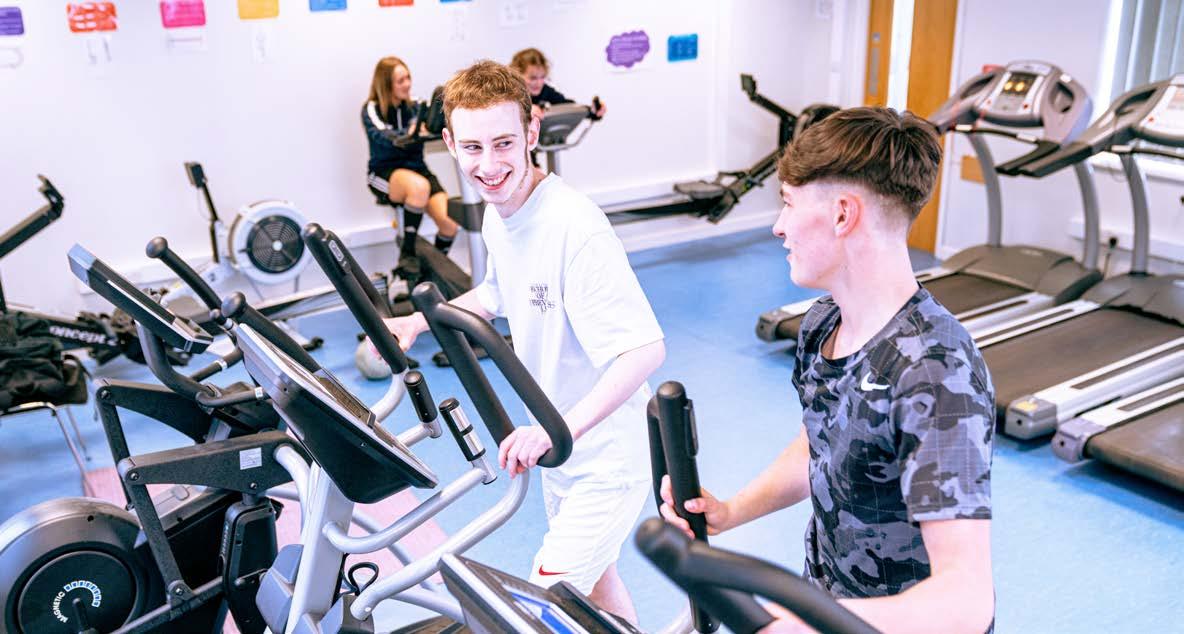

PSYCHOLOGY AND SOCIOLOGY
Application
Evaluation
Analysis
Organisation
Independence
Critical thinking
Problem-solving
Awareness of human behaviour
SKILLS COURSES
Written and verbal communication
Evaluative and analytical skills
Teamwork
Cultural awareness
Cultural understanding
Psychology A
Level
Programme: Single Assessment: 100% Assessment
More students are taking Psychology, with an increased number progressing to university for Psychology and related degrees.
What will I learn?
Studying AQA A-Level Psychology will introduce you to the scientific study of the mind and behaviour. You’ll explore fascinating topics such as Memory, Attachment, and Social Influence, learning why we think and act the way we do. The course also delves into Psychopathology (abnormal psychology), investigating the causes and treatments of mental illnesses like OCD and depression. Critically, you’ll develop strong analytical and evaluation skills as you examine various psychological approaches (like the cognitive and biological) and learn how to conduct and assess psychological research. It’s a challenging, rewarding subject that combines science with philosophical debate.
Possible Career Paths
• Psychotherapist
• Social Worker
• Educational Therapist/Psychologist
• Teacher
• Researcher
• Counsellor
• Clinical Psychologist
Complimentary Courses
• Sociology
• History
• Mathematics
• Biology
• Health and Social Care
• Applied Science
• English Language
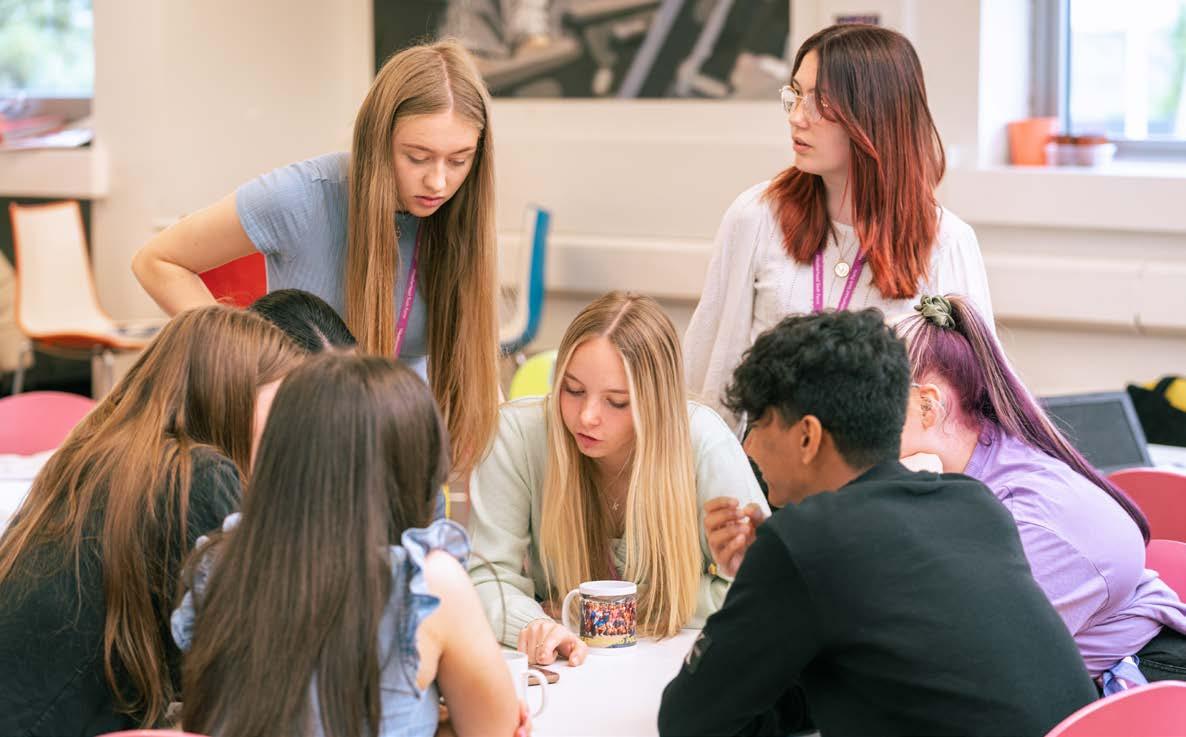
SOCIOLOGY A Level
Level:
3
Duration: 2 Years Programme: Single Assessment: 100% Assessment
What will I learn?
Throughout your Sociology course, you’ll explore the reasons for differences in educational achievement, possible causes and solutions to poverty in our society, experiences of inequality and discrimination by different social groups, why certain groups are more likely to commit crime and why some groups are more likely to be caught and prosecuted, whether belief systems are a source of positive social change or conflict, how different sociological perspectives view society, and the research methods sociologists use to study society.
Possible Career Paths
• Lawyer
• Social Worker
• Probation Officer
• Teacher
• Police Officer
• Counsellor
• Criminologist
• Youth Work
• Community Development Worker
• Civil Servant
• Journalist Complimentary Courses
• Psychology
• History
• Geography
• Religious Studies
• English Literature
• English Language
• Health and Social Care
• Film Studies
Visiting speakers including Martine Snowdon - Criminal Barrister and Sociology leads from local universitieswe visit Shrewsbury Prison to challenge students to consider the role of media in shaping societal attitudes towards crime, punishment, and rehabilitation.
As a department, we are above national averages & similar centres for all grade comparisons - e.g. our A*-B grades were 58% in 2024, compared to 45% nationally.
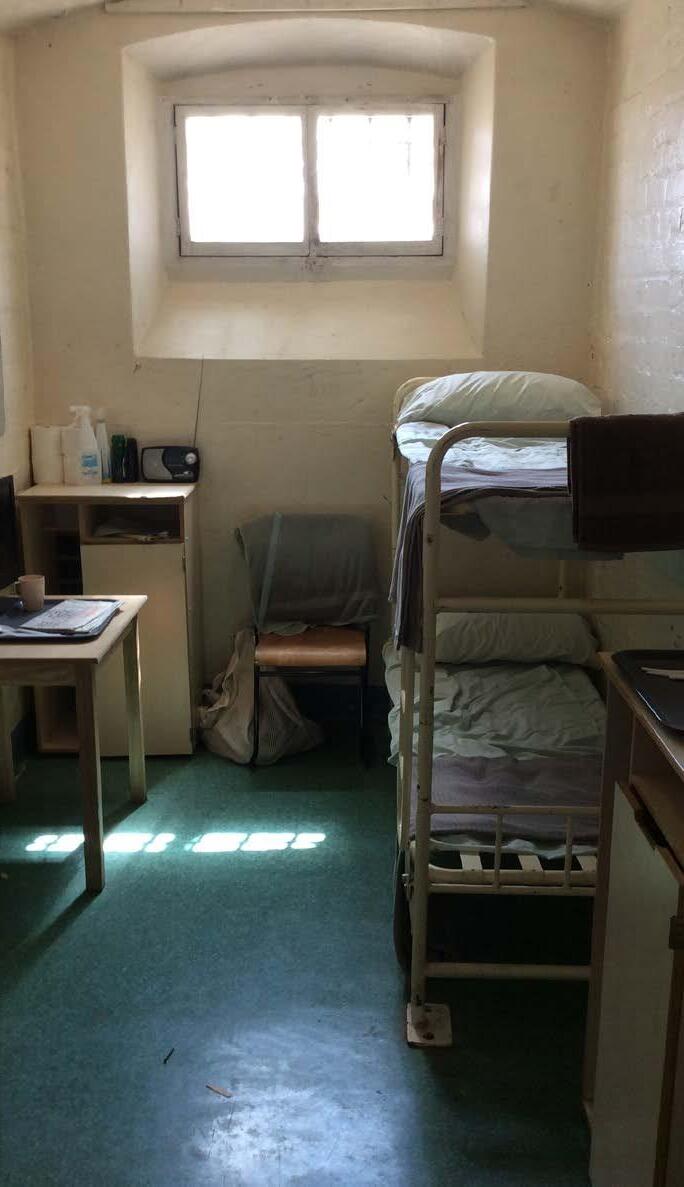
FOUNDATION ONE YEAR COURSE
BUSINESS
Level 2)
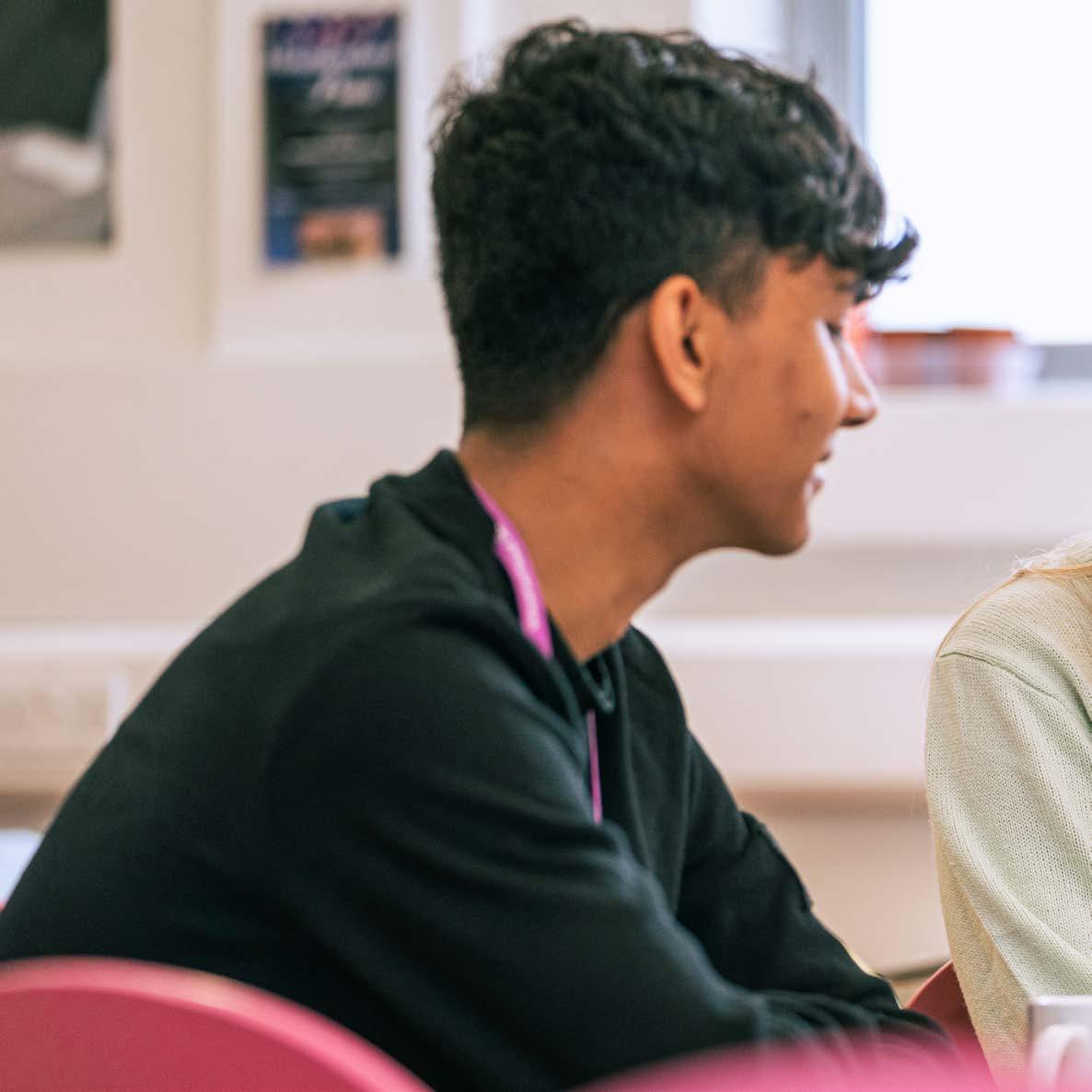
What will I learn?
The BTEC First Award in Business introduces key areas like marketing, finance, enterprise, and customer service. You’ll study how businesses operate and succeed through coursework, an exam on managing money, and practical activities such as planning a business idea and exploring social media in business.
Complimentary Courses
This course complements the BTEC First Information and Creative Technology course in terms of website development, digital skills and the use of social media to make sure a business is successful.
Possible Career Paths
• Social Media
• Marketing • Human Resources
Banking
Finance
What will I learn?
This Information and Creative Technology course builds essential digital skills. You’ll explore the online world and online safety, create a digital portfolio, produce and edit videos, and design interactive websites.
Complimentary Courses
This course complements the BTEC First Information and Creative Technology course in terms of website development, digital skills and the use of social
Possible Career Paths
• Website Content Manager
• Computer Animator
• Camera Operator
• Video Editor
• Database Administrator
• Database Manager
• Website Developer
English Language
GCSE (Resit)
Level:
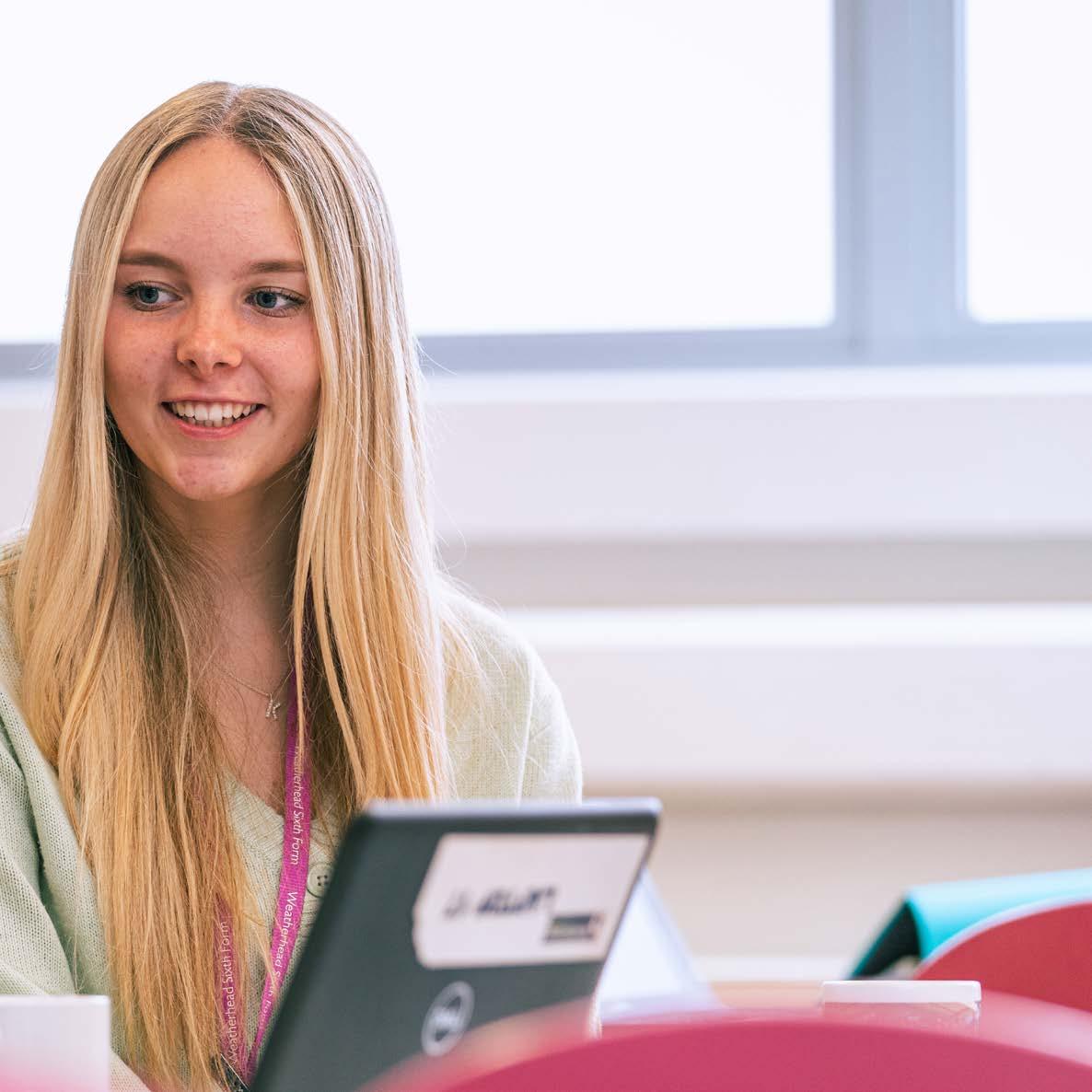
What will I learn?
Develop confidence in reading and analysing fiction and non-fiction. Practise language, structure, and tone analysis to enhance critical reading. Improve narrative and transactional writing skills, while strengthening spelling, punctuation, and grammar. Build exam skills through past papers, mocks, and feedback. Aim for grade 4+ to support further education, apprenticeships, or employment.
Possible Career Paths
• Customer Services
• Administration
• Teaching Assistant
• Record Keeper
Mathematics
GCSE (Resit)
What will I learn?
Develop skills in Number, Algebra, Ratio, Geometry, Probability, and Statistics, with a focus on practical problem-solving for everyday use and further study
Complimentary Courses
This course complements the BTEC First Information and Creative Technology course in terms of website development, digital skills and the use of social media to make sure a business is successful.
Early Years Practitioner
What will I learn?
This course builds skills to become a Level 2 practitioner, covering safeguarding, equality and diversity, child development, supporting specific needs and disabilities, working with professionals, and preparing children for school. Programme: Single Assessment: Coursework and placement observation
Possible Career Paths
• Level 2 Nursery Nurse
• Level 2 Teaching Assistant
You gain a license to practice, allowing immediate employment, along with hands-on experience in early years settings.
COURSE ENTRY REQUIREMENTS
ART, PHOTOGRAPHY & TEXTILES
Fine Art
• A GCSE in Fine Art or Textiles.
• Enthusiasm for the subject and a commitment to spend the required time developing and refining skills.
• Good drawing skills are very important to succeed.
• An interest in learning from other Artists and Designers.
• A willingness to try new ideas and experiment.
Photography
• A GCSE in Fine Art or Textiles.
• Enthusiasm for the subject and a commitment to spend the required time developing and refining skills.
• An interest in learning from other Artists and Designers.
• Creativity and a willingness to experiment is very important to succeed.
Textiles
• A GCSE in Fine Art or Textiles.
• Enthusiasm for the subject and a commitment to spend the required time developing and refining skills.
• Creativity and an aptitude for the subject are very important to succeed.
• An interest in learning from other Artists and Designers.
• A willingness to try new ideas and experiment.
BTEC BUSINESS
BTEC Business
• You must have achieved 5 GCSEs at grade 4 or above including a grade 4 in Mathematics and English Language.
CREATIVE DIGITAL MEDIA & FILM STUDIES
Creative Digital Media
Film Studies
• You must have achieved 5 GCSEs at grade 4 or above including a grade 4 in Mathematics and English Language.
• You must have a general interest in film.
• You must have achieved a minimum of a grade 5 in English Language or English Literature.
ENGLISH LANGUAGE, ENGLISH LITERATURE & SPANISH
english language
english literature
spanish
• You must have achieved a grade 5 in English Language (although a grade 6 or higher is advisable).
• You must have achieved a grade 5 in English Language (although a grade 6 or higher is advisable) and a grade 6 in English Literature.
• You must have achieved at least a grade 6 in GCSE Spanish.
EXTENDED PROJECT QUALIFICATION
epq
• You must have achieved 5 GCSE grades 4 and above
GEOGRAPHY, HISTORY & RELIGIOUS STUDIES
Geography
History
Religious Studies
• You must have achieved at least a grade 5 in GCSE Geography, English Language, Mathematics and Science, although a grade 6 or higher is advisable.
• You must have achieved grade 5 on all GCSE Geography exams, although a grade 6 or higher is advisable.
• You must have achieved at least a grade 5 in all three examination unites of GCSE History, although a grade 6 or higher is advisable.
• At least a grade 6 in English Language is advisable.
• You must have a grade 5 or above in English Language and English Literature.
• We recommend that you should have at least 5 GCSE grades at 5 and above.
AAQ HEALTH AND SOCIAL CARE, EDUCATION AND EARLY YEARS, MENTAL HEALTH AAQ
Health and Social Care AAQ
Education and Early Years T Level
AAQ Mental Health
• You must have achieved 5 GCSE grades 4 and above.
• You must have achieved 5 GCSE grades 4 and above.
• You must have achieved 5 GCSE grades 4 and above.
MATHS, SINGLE SCIENCE AND AAQ APPLIED SCIENCE
Mathematics
Biology
Chemistry
• You must have studied higher tier GCSE Mathematics.
• You must have achieved a grade 7 or above.
• You must have studied higher tier GCSE Biology.
• You must have achieved a grade 6 or above in GCSE Biology.
• You must have achieved a grade 66 in Double Science.
• You must have achieved a grade 6 or higher in both Chemistry and Mathematics.
• You must have studied higher tier GCSE Chemistry.
• You must have achieved a grade 6 or above in GCSE Chemistry.
• You must have achieved a grade 66 in Double Science.
• You must have achieved a grade 6 or higher in Mathematics.
Physics
• You must have studied higher tier GCSE Physics.
• You must have achieved a grade 6 or above in GCSE Physics.
• You must have achieved a grade 66 in Double Science.
• You must have achieved a grade 6 or higher in Mathematics.
AAQ Applied Science
• You must have achieved a grade 44 in Double Science.
• You must have achieved a grade 444 in Triple Science.
• You must have achieved a grade 4 or higher in Mathematics.
COURSE ENTRY REQUIREMENTS
PERFORMING ARTS, DANCE, DRAMA AND MUSIC
Dance
Drama & Theatre
Music BTEC
• You must have achieved at least a grade 5 in Dance at GCSE.
• You must have achieved a grade 4 or above in GCSE Drama as A Level Drama builds upon the GCSE course.
• You must have some experience of performing to take this course.
• Knowledge and theory of music notation is desirable as is being able to play a minimum of grade 3 standard in your instrument.
PHYSICAL EDUCATION AND SPORT
Physical Education
Sport BTEC
• You must have achieved at least a grade 6 on both of the examination papers in GCSE Physical Education.
• You must have achieved at least a grade 6 in English Language, Mathematics and Science.
• You must have achieved at least a grade 4 on both of the examination papers in GCSE Physical Education.
• You must have achieved at least a grade 4 in English Language, Mathematics and Science.
PSYCHOLOGY AND SOCIOLOGY
Psychology
Sociology
• You must have achieved a grade 5 or higher in English Language, Mathematics and Science (including all parts of Science).
• You must have achieved at a grade 5 or higher in English (although a grade 6 is advisable).
• You need to be good at writing essays.
• You must have an interest in social and political issues and what goes on in society in general.
Please note: Details in this course guide were correct at the time of printing, but may be subject to change without prior notice should circumstances dictate. Whilst every attempt has been made to ensure the accuracy of the information provided, we reserve the right to make amendments without notice. Courses will only run subject to minimum enrolments. Weatherhead Sixth Form reserves the right to refuse individual’s entry to courses in certain circumstances. Prospective students may be advised of a more suitable alternatives if appropriate.
0151 631 4401
www.weatherheadhigh.co.uk/sixthform
ask6f@weatherheadhigh.co.uk | sixthformapps@weatherheadhigh.co.uk
weatherhead6th
Weatherhead 6th
Weatherhead High School, Breck Road Wallasey, Wirral, CH44 3HS
